#Ken Green Author
Explore tagged Tumblr posts
Text
Halloween
~Halloween by Phoebe Bridgers~
Author's Note: requested! thehehe blurb :) Summary: Cole and Y/N figure out their Halloween costume for the annual Habs party Warnings: implied smut, Word Count: 769 Cole Caufield x fm!reader

“No, no, Cole we are not dressing up as that, who do you think I am?” she explained while laughing. He tilted his head back chuckling as he continued to scroll through Google photos.
“Okay fine, what about like Peter Pan and TinkerBell? That could be fun,” Cole mumbled as he tilted his head back. She shook her head.
“Why is this so hard,” she groaned as she ran her fingers through her hair. “We did Disney last year, we can’t do it back-to-back,” she turned and met his gaze. He smirked as his cheeks pinked up.
His gaze lowered towards her lips. “Does that really matter?” he asked. Her lips fell into a pout. Cole rolled his eyes playfully as he chuckled, “I guess it does,” he mumbled. He took in a deep breath. “What do you have in mind, my love?” he questioned as he leaned back, resting his hands onto his thighs.
She leaned into him, peaking towards the computer. She scrolled for a few seconds, looking at all of the couple costumes on the screen. Many were too sexy and filled with innuendos.
“What if we were Taylor Swift and Travis Kelce?” she asked hopeful.
“No! No, we’re not doing that,” Cole shut down instantly.
“Cole,” she whined.
“You expect me to put on a Cheifs jersey? Really?” Cole said while shaking his head.
“It’s one Halloween party, baby!” she whined, she rested her hands onto his shoulder, turning him towards her. He continued to shake his head.
“I am a Packers fan and you expect me to wear a Cheifs jersey, that’s like asking me to wear a Bruins jersey,”
“It is definitely not the same thing as that,” she mumbled. She stepped toward him, he opened his legs, allowing her to step closer to him. She slowly wrapped her arms around his neck. He continued to shake his head.
“I’m sorry, baby, my blood bleeds green and yellow, I can’t with good faith put that jersey on,” he explained as he wrapped his arms around her waist. Her lips fell into a pout, as she tilted her head to the side.
“Go Pack go, go Pack go, go Pack go-” he whispered as he raised his fist up in the air, pretending to chant. She rolled her eyes playfully as she tilted her head back giggling.
“Stop it,” she let out laughing.
He dragged his tongue across his bottom lip before he pressed them together. He pulled her closer to him. He leaned towards her, kissing her softly for a moment before he slowly pulled away, keeping his eyes closed.
She pecked his lips a few times before she fully leaned away from him. His hands subconsciously slid up her shirt, resting his cold hands onto the small of her back. He tapped his fingers delicately against her skin.
“Then give me other ideas,” she whined as ran her hands along the base of his neck.
“Okay, rapid fire?” he let out. She nodded encouragingly. “Okay, Barbie and Ken or Batman and Batwoman, or Mario and Princess Peach, or Stu and Tatum-”
“Wait really?” she asked excitedly. He pulled his head back slightly, a smirk toying to his lips. Slowly, he wrapped his hands onto her hips, squeezing her skin tightly for a few seconds.
“What, are you into that or something?” he asked teasingly.
“We’re not-no we’re not going to talk about that,” she let out, lowering her gaze towards the logo on his hoodie. “That could be really fun! I gotta find a wig,” she said excitedly as she slipped away from his grasp.
“Can’t you just do the-ya know-those pigtails,” he offered, he nervously ran his hand across the base of his neck. She spun around meeting his gaze suspiciously.
“What, are you into that or something?” she said mocking him. He rolled his eyes as he followed afer her.
“Do I get the mask or do I just go with the sweater?” he asked as he ran his hands together.
“Is that even a question, baby?” she offered as a giggle fell from her lips.
“So you are into it!” he teased.
“I didn’t say that!” she called out as she jogged away from him. He reached towards her and took a hold of her waist, pulling her towards him. “I didn’t say that,” she whispered. He leaned towards her, pressing his lips against her neck.
“I guess we’ll find out after the party, huh?” he whispered.
“Oh whatever,” she mumbled as she spun around, she rested her hands onto his cheeks. He leaned towards her kissing her urgently.
#cole caufield fluff#cole caufield x reader#cole caufield imagine#cole caufield imagines#cole caufield#nhl imagines#nhl#nhl x reader#nhl fic#hockey#montreal canadiens x reader#montreal canadiens imagines#montreal canadiens
172 notes
·
View notes
Text

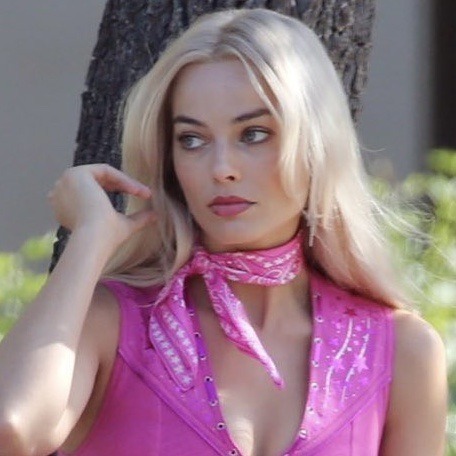
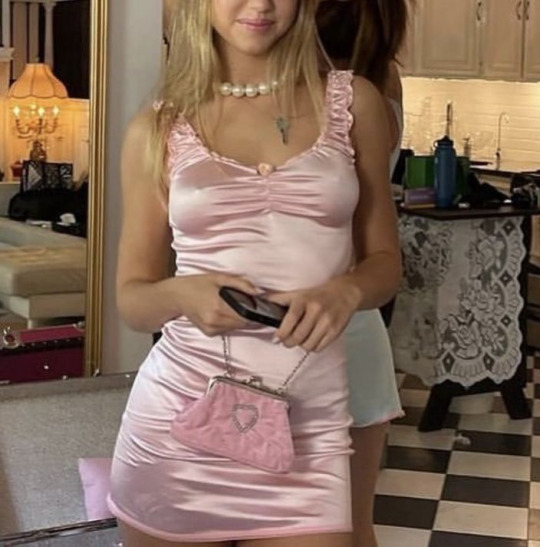
NEW INTERESTS

summary: as business woman barbie, you had to be quite serious and uptight about your field of work. so when you couldn't make it sleepover night, which wasn't unexpected of course ꒰but nevertheless꒱ , stereotypical barbie comes to check up on you.
warning/s: top! barbie, bottom! reader, no smut, but it's implied, fluff/comfort, tired reader, talk of depression, swearing, not proofread, pretend they have genitals btw.
word count: forgot to check lmao
authors note: hi hi hii ! first post omg? i just watched the new barbie movie and..im fucking obsessed, i swear i missed half the movies dialogue tho cause i was admiring margot's gorgeous face. anyway i thought what if we had a super stressed, borderline depressed barbie who just needed a break from her thoughts ? enjoy pookies ! ୨♡୧
+ btw men dni.
navigation ! | ୨♡୧

the wheels of your pastel pink car came to a stop in your driveway as you sluggishly dragged yourself out of the drivers seat. another long day, another girls night you couldn't deal with. bright lights illuminated the moving bodies on the vast dance floor, pointed stilettos tapping and turning swiftly as stiff hands clapped and clicked to the music.
clutching your purse, you moved across the dance floor, avoiding flapping arms and desperate kens in need of a dance partner. as you got to the last section of your mission, you felt a pair of eyes on you, a pair of eyes that were too familiar for you to shake off. looking over to your far left you found a set ocean blue eyes staring right back at you. the one and only stereotypical barbie. the perfect one, the main bitch of barbieland acknowledging your presence.
conversations between the two of you were very scarce. with you having a very busy work life and her having none at all, you never crossed paths that much. but living right across from her was a given, so conversations at times were necessary.
brushing off the nervous feeling that had crept up on you, you silently scolded yourself for the rosy blush that had quickly painted your cheeks. once again, clutching your purse tighter, you resumed your journey to your apartment in the lively dreamhouse.
the scratched door creaked open as you released your grip on the plastic doorknob. in any other room you can pretty much expect bright pinks and yellows and lovely colors..but not yours. in fact it wasn't the case at all.
black scribble lines all over formerly hot pink walls, torn up grey bed sheets, deflated pillows, a bedside rug that was once a lovely shade of baby blue now a murky lake green, and scratches, whoever was messing with this room had a no sense for care, as this room, this room was desecrated with scratches and marks.
sighing, you flopped unto the creaky mattress, the back of your knees hitting the plastic bed structure. reaching over to your achy feet, you pulled off the black heels that had been causing you anguish the whole day.
dropping your heels, you unzipped your pale pink silk dress, one of the very rare bright pieces of clothing you had left. flinging it over to the other side of the room, you tapped over to your closet, the once shiny, luxurious white structure, scribbled on and vandalised; stripped of its pride. you looked through the distressed drawer that had been left open from the mornings' rush. music flooded into the silence of your room as picked out navy blue pyjama bottoms and a tight fitted white tank top.
as if by magic (no pun intended) , your desired clothing adorned your slim body as you strolled over to your bed, plopping yourself on it and sinking into the mattress.
thoughts clouded your mind like a raging storm, keeping you a prisoner of your own mind. weird barbie said this would happen a lot more so it shouldn't have been unexpected. but it still hit you like a brick every time the thought of stereotypical barbie flooded your head. her plump lips, the crystal blue eyes that locked you in a trance at the slightest glance and her hair, oh god her hair. you just wanted to run your fingers through the golden curls. you wanted to tangle your fingers in it, you wanted to ruin it, you hated how perfect it was.
you hated her. you hated how ken adored her, how everyone was so goddamn drawn to her, it was like the town revolved around her jobless ass. you wanted her. you needed her. you needed her to need you. but you had your ken and she had hers, and that was that.
the last person who uttered a word about a barbie and a barbie or a ken and a ken was weird barbie and look how she turned out. it's not like you weren't weird yourself, with your heels dropping, thoughts about death, uncanny interests in barbie , your burnt waffles and messed up room and messed up clothes, you were borderline line outcast. you just hadn't been sent to the weird house yet.
'it's only a matter of time though'. you thought shutting your eyes. the late nights and early mornings catching up to you.
it only seemed like a few minutes before you felt the opposite side of your bed sink and a warm hand on your icy shoulder. shrieking, you leaped into an upright position, very nearly hitting your head on your heart shaped headboard.
"jesus! what the hell.." you came to an abrupt stop as you looked over to your side meeting a very dear set of eyes. "look, i'm sorry for barging in so randomly, i know you were sleeping and you're a very busy woman and-" the words mushed together in your head as you focused on her pouty lips. you would let her talk for hours on end if it meant seeing those lips move.
"it's okay." you stated, the corners of your lips turning up. "really? i mean i could leave honestly! it's no biggie..i mean if you want me stay i could?" the icy blonde rambled meeting your gaze softly. "i promise your fine." you assured her shuffling a bit, suddenly feeling very naked.
"so why are you here?" you questioned, sinking back into the comfort of your duvet. dropping your gaze, she fiddled with her velvet night gown, undoing the strings and redoing them. "..well i don't know, you looked more down than usual and you at least make it to the nail painting sessions in my room, but today you missed the whole night altogether." barbie confessed, searching your y/e/c eyes for reasons.
"i know, but-" "you promised." she stated, cutting your flimsy excuse short. "i'm sorry. i've just- i've had some things on my mind as of recent." you explained, your eyes looking at barbies' room across from yours.
“ what type of thoughts?” you raised your eyebrow at her answering her question silently. “right. too far… sorry.” she blushed, tucking her blonde hair behind her ears. an uncomfortable silence filled the room as barbie crossed her legs, moving dangerously close to you.
clearing your throat, you glanced at her figure, letting the image cloud your senses. the curve of her hips to the sharp cut of her jawline, she really was the perfect barbie.
“i have thoughts about death too.” barbie whispered. you didn’t reply so she continued “all the time actually. they’re more frequent than they used to be. i thought maybe someone felt the same way as me so i shared it during the dance party downstairs, but, they just looked at me like i was.. weird.”
your heart rate tripled as you gazed up at her. she looked so.. vulnerable. all this time you had thought you were alone in this paradise. you thought of yourself as the elephant in the room. but there was a chance that the one person you thought was perfect, was just as fucked up as you.
“i’m so sorry, i’m gonna leave now-” “stay.” you muttered connecting your eyes with hers. “what?” the blonde asked, a bewildered look on her face. “i think about death too. maybe we have more in common than we thought.” you explained, running your fingers through your y/h/c haphazardly layered hair.
grinning immediately barbie sat back down, babbling instantly. and you did what anyone would do if they were in that same situation, you stared at her with hearts in your eyes, smiling broadly.

only mattel knew how you ended up sprawled across your bed with barbie straddling your lap, braiding chunks of your hair. who knew depressive thoughts could bond two dolls like this?
“your eyes are so pretty.” you murmured gazing up into her ocean blues. blushing she retorted : “oh shut up.” , but you could tell from her scarlet cheeks and darting eyes that she appreciated the compliment.
“can i kiss you?” you blurted, not being able to hold yourself back. barbie stared at you, her eyes glistening. preparing yourself for rejection you opened your mouth only to have it shut by pillowy lips.
stars behind your eyelids, in fact a whole constellation. gliding your fingers up the small of her back, you reciprocated the kiss as she cupped your face softly. biting your bottom lip, she explored your mouth slowly. sucking on your tongue, she extracted a well deserved moan out of you.
“fuck y/n” she groaned, grinding on you. moaning desperately, you fervently moved your hands around her body as she pulled away. breathing heavily you both stared at each other lovingly. “the others will hear..” she commented, returning to fiddling with your hair. agreeing, you smirked as she looked at your lips.
“i better go then. i don’t want you tired tomorrow, busy work life and all.” the blonde remarked as she slowly stood up. “mhm” you retorted, as you let your eyes wander all over her body.
“i’ll see you tomorrow, sleep well okay?” she stated, looking over at you as she got to the door. “i will.” you grinned, snuggling into your comforter. and at that she giggled as she closed your door, the echo of her voice promising you of better days. ˗ˏˋ ꒰ 🩰 ꒱ ˎˊ˗
#important stuff !#🎀#new fic !#margot robbie#margot robbie smut#fluff#margot robbie barbie#ken barbie#mattel#barbie x reader#swiftries#barbenheimer
2K notes
·
View notes
Text
Support for the Queen
Taglist: @sylas-the-grim, @valeskafics, @lovelykhaleesiii, @arcielee, @barbiedragon, @cyeco13, @lunaoieoie,
warnings: Viserys as a kind of shitty dad is mentioned, Brat taming, p in v sex, teasing, praise kink, for the first time ever there is spitting people, breeding kink at the end, also exhibitionism if ya squint,
This is based on this request here
Authors Note: there may be errors, I don’t really know. I tried as much as I could even though I did quite enjoy writing this :)
Series masterlist here
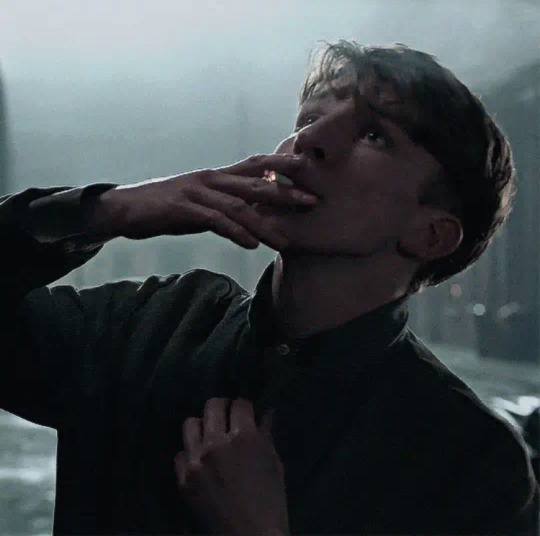

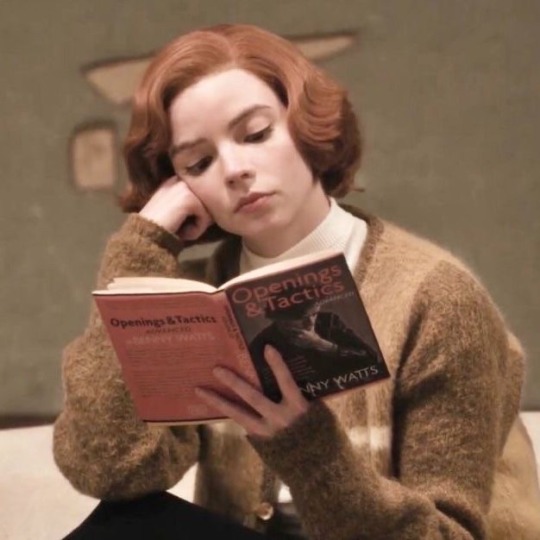

Aemond never actually realised how male dominated the chess world actually was before you’d came into both his life, and the life of the chess world.
Soon, he’d become an undefeated champion for years. None were willing to take a chance of an embarrassing defeat, and instead thought it was better for themselves to surrender their kings early like cowards. It was the same routine, utterly boring and pointless, until he finally met you.
His elder sisters had no interest in chess at all, even though his father had tried hard for years to change their minds. The effort his father went though was shocking to all his kids to say the least. The many varieties of chess sets that were purchased was extortionate, and so was the cost of all the grand chess masters that Viserys had hired to play matches in front of them to try and spark some type of interest. In the end, both attempts failed disastrously.
The most they interacted with one of these attempts was when Rhaenyra his eldest sister got a Barbie themed chess set for her birthday, with Barbie on the side of the whites and Ken on the side of the blacks. She took one look at it and couldn’t stop laughing at how ridiculous it was, much to his fathers annoyance. As according to Rhaenyra, he’d gotten the game custom made and supposedly cost him an absolute fortune.
His father had tried hard with his elder brother too, but like with his sisters, he also soon lost interest in the game. He become a burnout before he could even begin to be forced to compete in any competitions. The lucky bastard...
Viserys though hadn’t really tried with Aemond. Deeming his wish for a prodigy child already gone and hopeless. Though after Aemond had the accident, he’d found himself easily becoming bored just sitting in his hospital room. The crap tv was only showing the same six episodes of some lame kids show, and the lone window only displayed the reflective wall of a tall skyscraper.
Aemond doesn’t remember too much of the hospital, as he was constantly being pumped with some green pills that now he’s older, is surprised how the hospital found it fine to give to a ten year old.
But what he does remember, is that in the corner collecting dust was an old an old chess. It was practically gathering dust. The wood finish looked old and faded, and there were a couple pieces missing. Still, it was a better way to waste time than any else there.
A couple hours later, when Viserys had walked in on Aemond playing against himself, Aemonds “normal childhood” was over. As I’m Viserys eyes, he’d finally found that prodigy kid he so dreamed of to latch onto. From that moment, all Viserys had made him do was tournament after tournament.
It grew tiresome after a while though. As soon after he’d begun to properly compete, Aemond found himself becoming an undefeated champion in his league. None were willing to take a chance of an embarrassing defeat, and instead thought it was better for themselves to surrender their kings early like cowards. It was the same routine, utterly boring and pointless. That was until however, he’d finally met you.
You’d fascinated him since he first met you. The miniature jab you gave him when not even three seconds after looking at the board, and already you were predicting a move just like he could do. It wasn’t much, but it certainly made him begin that road of obsession.
Obsession over you. Obsession over your talent. He even found himself obsessing over the interviews that usually he’d tend to ignore. But after he met you, suddenly he’d find himself having the urge to check the chess monthly magazine, and any other type of news that studied chess, in every store just to see where you would pop up next and who’d you next defeat.
Plus, that little battle of the boards that he’d had with you those months after he’d beaten you. Those were fucking precious to him.
The obsession though didn’t even stop after the two or you had agreed to date.
At the current moment, he’s watching you once again be the only woman competing in this tournament. And once again, he’s watching you completely dominate the pathetic fucks who think just cause they have cocks, they can defeat you without much effort.
To be completely honest with himself, the way you were staring at your opponents with this look of just utter satisfaction and smugness, reminded him of himself. And he’d be lying if he said it wasn’t turning him on a lot.
The little smirk you give the current guy you’ve just put in check, some fucker who looks like you’ve just insulted his mother to his face as you move a previously positioned knight, makes him so hard he feels like he needs to nip to the men’s bathroom to sort himself out.
But he knows that you look for him for support, as much you’ll refuse to say otherwise. And if he was to move and walk away from your match, it’d completely throw you off and make you believe you need those pills the two of you tried so hard to fight with for most of your lives.
His erection only worsens when you finish the match that’ll get you into the quarterfinals, and as you finish your handshake in a sportsmanship manner, you turn to him and wink before walking to your next match.
Aemond can’t help but chuckle in amusement as he looks at your swaying hips. You definitely had to be riling him up on purpose by now. There had to be no way that you hadn’t realised the reason behind why he was positioned awkwardly on his chair as he sat himself down on another seat, to watch you once again dominate the competition.
The next few times though that he’s forced to move to watch your next match, his hands are awkwardly positioned in front of his throbbing dick in a poor attempt at keeping it hidden. Though by the way you turn to him before you start the finals and look down with a bemused smile, it official confirms to him that you now know just how much you were effecting him by your cockiness.
By the end, after you’ve shaken hands with some Belgian fucker looking like sour milk, Aemond feels his instincts working before his head. You’ve barely held the small champion trophy and cheque that they’ve given you, before he’s handing them to a bemused Baela whose been watching the match with him, and dragging you into some abandoned store cupboard and forcing you to sit on a desk that looks as if it’d fall any second.
“What the fuck is your problem?” You snap while Aemond himself chuckles in amusement. You’re cocky act has seemingly fallen into brattiness, yet even while you do it he can see the way your eyes drift down to his crotch where his jeans don’t do well to hide the prominent bulge straining against the denim fabric.
“You princess. You’re my problem.” Is all he says before he’s connecting his lips to yours, and the wet sound of your kissing surrounds the room as it seemingly grows hotter.
At first, Aemond focuses solely on taste of your lips. The lips that currently taste a mixture of the small vodka shot you downed befofe the match and the strawberry lip balm that drives him fucking crazy. But while he’s thinking about how perfect and good you are for him, the feeling of your hand trying to undo his zipper, and you sticking your hand down the front of his jeans to fondle at his erection, breaks him out of his love spell.
The deep groan that rumbles from him is muffled by your lips, and when he pulls away, he smirks at the small you you let out.
“Oh I see! The little brat wants her winning prize…” He smiles as he pulls up at your dress to reveal your soaked underwear. When he pulls that down slowly and teasingly, Aemond nearly groans out loud at the sight of your dripping core all layer for him. All pretty, waiting and desperate for him to fill it.
The sight makes him want to get on his knees and see if you’ll taste as sweet as your lip balm. But as much as Aemond wants to feel your arousal on his tongue, already practically salivating at the thought of tasting you, his erection aches painfully straining at the fabric, reminding him of what you were doing to him minutes previous.
So instead, Aemond only teases you with the pad of his thumb, before moving away before you could finish on his digit. He relishes cockily in the harsh glare you give him, and stands to his full height and brings his jeans and underwear low enough to free himself from his denim restraint.
Aemond can’t help himself from chuckling at the sight of you staring lustfully at him, and so he wastes no time in pushing himself inside of you, and relishing in the high pitched whine you let out before he’s forced to cover you mouth with his hand to quieten you down.
As he thrusts desperately inside of you, he can feel the air of your breaths hurry into pants through his hand as he speeds up to purposefully bully that rough spot inside of you that he knows you love. He can hear you whisper something into the skin within the base of his palm, and releases you mouth from his grasp to hear it.
“Please Aemond! Please let me cum!” You whine as you dig your nails into the skin of his back that you’re able to reach from under his shirt.
“Awe… does my pretty prodigy want to cum?” It’s cruel for him to tease you, he knows it for a fact, and yet it’s so strangely satisfying to do so. His movements dramatically decrease to a snail like pace, and he has to burrow his head into the curve of your shoulder to hide his smile when he hears you whine in annoyance. Like a child when she hears her mum won’t buy her a lollipop…
“You’re such a dick Aemond!” You growl. His head immediately takes itself away from your skin, and his grip on you tightens. When he looks into your eyes, his eyebrows furrows in annoyance, and he can already see the hint of regret on your face as his own turns stony.
“What did you just say?” He murmurs. He can see the way your eyes widen slightly at his calm demeanour, but both he and you know he’s nothing but calm at the moment.
“Come on princess use your words for me now. What did you just say to me?” One of his hands moves to grab ahold and tighten on your jaw, forcing you to make eye contact with him as he moves forward and effectively leans forward to tower over you. If Aemond had any idea on how you were feeling at the sudden atmosphere shift of the room, by the look on your eyes alone, he’d say you were aroused. Very aroused, if the sudden increased wetness he felt meant anything to go by.
An idea comes to mind, and a satisfied smirk appears on Aemonds face as a single thumb of his wedges it’s way into your mouth, and to his amusement, you don’t even need instructions before you begin to suck diligently at the digit with hooded glazed eyes.
“Good girl…” He purrs. “Open your mouth wide now.” And when you do as he says, he wastes no time before collecting some spit on his tongue, and letting it drip from his onto yours. “Now swallow.”
When you do, much to his sadistic amusement, Aemond proceeds to roughly thrust back into you to bully that spot of yours once more. The grip on your body tightening again as he moves and his hips begin to dig slightly into your own.
Soon, once more, the sounds of his and your fucking filled the space of the room. Aemond doesn’t even bother to cover your mouth this time. Let them hear… he thought. Let them hear you being fucked good and proper by him, just as it should be…
You cum around his cock suddenly while he’s thinking, and the sounds of your pleasure go high pitched as your grip on him with your nails leaves small indents into the skin on his back.
Aemond knows that you’re currently on birth control. Both he and you had agreed when you’d agreed to date each other that kids weren’t what two highly successful chess players needed at this time, especially when you were that early in your own career.
Yet as Aemond cums inside of you with a low and deep groan, he can’t help but think about what would happen if his seed actually took. What would happen if a couple months later, he’d be able to lazily stroke a hand over your swollen stomach and think to himself, he did this to you.
#aemond targaryen#house of the dragon#aemond targaryen x reader#aemond targaryen smut#aemond targaryen/reader#hotd modern au#modern hotd au#modern! house of the dragon#modern!aemond x reader#modern!au#modern house of the dragon#modern aemond targaryen#modern aemond x reader#modern aemond targaryen/reader#modern aemond targaryen x you#modern aemond targaryen x reader#modern!aemond targaryen smut#modern!aemond targaryen/reader#modern!aemond targaryen#modern!aemond targaryen x reader#modern!aemond#modern!hotd#modern!house of the dragon#modern!aemond x fem!reader#aemond targaryen x modern!reader#queens gambit!au#queens gambit#my works#we play to win
245 notes
·
View notes
Text
EXCLUSIVE: Tom Hiddleston (Thor franchise) and Mark Hamill (Star Wars) are set to star in new Stephen King adaptation The Life Of Chuck, which will be a hot package at the upcoming Cannes market.
Doctor Sleep and The Haunting Of Hill House helmer Mike Flanagan is directing, scripting and producing for Intrepid Pictures alongside fellow producer Trevor Macy.
FilmNation will handle international sales with WME Independent handling domestic.
Based on the short story from King’s 2020 anthology If It Bleeds, The Life of Chuck is three separate stories linked to tell the biography of Charles Krantz in reverse, beginning with his death from a brain tumour at 39 and ending with his childhood in a supposedly haunted house.
The script, which was adapted prior to the WGA strike, has been in the works for several months with Hiddleston set to play the title character and Hamill joining for the role of Albie.
According to the production, the genre project will draw tonally from Stand By Me, The Shawshank Redemption and The Green Mile.
Golden Globe and Olivier winner Hiddleston is best known for Thor, Avengers and TV series The Night Manager, as well as stage projects such as Betrayal and Hamlet for Ken Branagh.
Hamill is best known for his portrayal of Luke Skywalker in the original Star Wars movies and reprised his role in both the sequels as well as the second season of The Mandalorian and season one of The Book of Boba Fett. He recently appeared in Netflix’s Sandman and will star in Intrepid and Netflix’s House Of Usher, which will air later this year.
Stephen King, aka ‘The King Of Horror’, is among the all-time best-selling authors. Among his books and short stories to have been adapted into hit movies are Carrie, The Shining, Pet Sematary, It, Stand By Me, The Running Man, The Shawshank Redemption, and The Green Mile.
This is the latest project to join a bumper Cannes market slate for FilmNation. Also on the lineup are Amy Adams-Paul Rudd comedy The Invite, Dave Bautista action-thriller The Cooler, and Andrew Garfield project Voyagers, among others.
Hiddleston is represented by UTA (US), Hamilton Hodell (UK), and Johnson Shapiro Slewett & Kole; Hamill is represented by Gersh and Kleinberg Lange Cuddy & Carlo; Flanagan, Macy and Intrepid are represented by WME, with VanderKloot Law also representing Flanagan and Reder & Feig handling Macy.
245 notes
·
View notes
Text

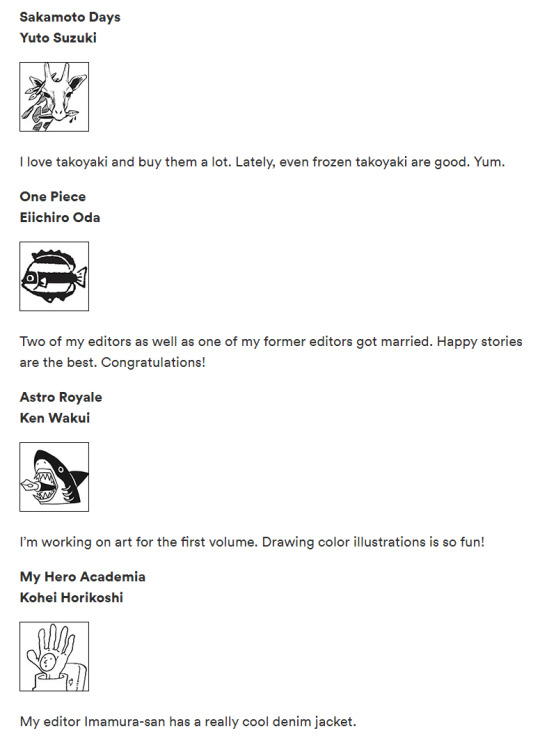
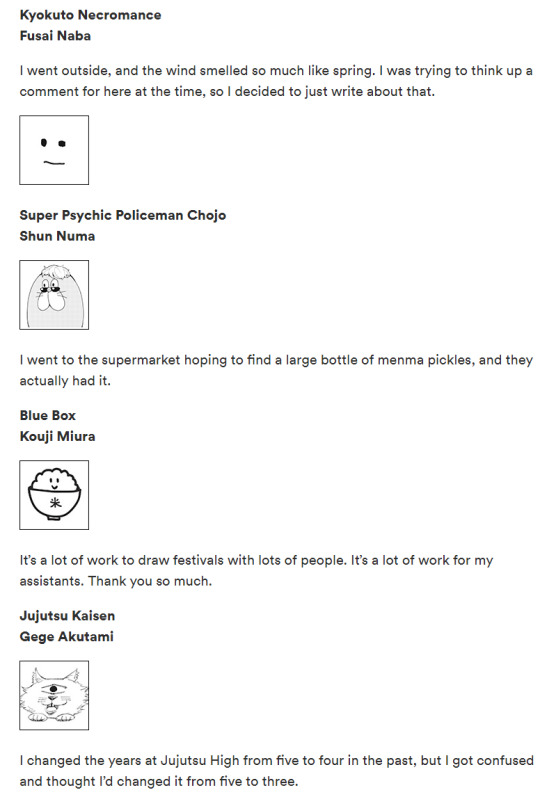


Official English translated author comments featured in Weekly Shonen Jump 2024 issue #24
Psych House chapter 1 - Omusuke Kobayashi
Mission: Yozakura Family chapter 225 - Hitsuji Gondaira
Kagurabachi chapter 32 - Takeru Hokazono
Kill Blue chapter 52 - Tadatoshi Fujimaki
Sakamoto Days chapter 165 - Yuto Suzuki
One Piece chapter 1114 - Eiichiro Oda
Astro Royale chapter 4 - Ken Wakui
My Hero Academia chapter 422 - Kohei Horikoshi
Kyokuto Necromance chapter 3 - Fusai Naba
Super Psychic Policeman Chojo chapter 13 - Shun Numa
Blue Box chapter 148 - Kouji Miura
Jujutsu Kaisen chapter 259 - Gege Akutami
Witch Watch chapter 154 - Kenta Shinohara
Me & Roboco chapter 184 - Shuhei Miyazaki
Akane-banashi chapter 109 - Yuki Suenaga
Undead Unluck chapter 206 - Yoshifumi Tozuka
The Elusive Samurai chapter 156 - Yusei Matsui
Nue’s Exorcist chapter 49 - Kota Kawae
Dear Anemone chapter 12 - Rin Matsui
Green Green Greens chapter 22 - Kento Terasaka
#Weekly Shonen Jump#Psych House#Mission Yozakura Family#Kagurabachi#Kill Blue#Sakamoto Days#One Piece#Astro Royale#My Hero Academia#Kyokuto Necromance#Super Psychic Policeman Chojo#Blue Box#Jujutsu Kaisen#Witch Watch#Me and Roboco#Akane banashi#Undead Unluck#The Elusive Samurai#Nue's Exorcist#Dear Anemone#Green Green Greens#author comment#manga#Viz Media
35 notes
·
View notes
Text
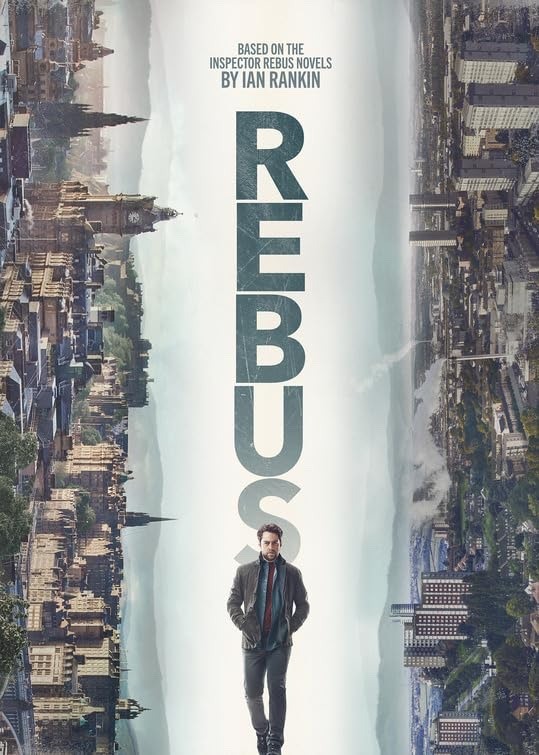
Rebus – BBC picks up new series
BY IAN MCARDELL FILED UNDER NEWS
Richard Rankin takes on the role of the famous Scottish detective
The BBC acquired the Scottish crime drama Rebus. Made by Eleventh Hour Films for Viaplay, and based on Ian Rankin’s novels, the series stars Richard Rankin (no relation) in the title role.
The detective has been previously played, as an Inspector, by both John Hannah and Ken Stott.
Rebus
The six-part series has been adapted for the screen by Gregory Burke who reimagines the character earlier in his career. Detective Sergeant John Rebus is drawn into a violent criminal conflict that turns personal when his brother Michael, a former soldier, crosses the line into criminality. Rebus finds himself torn between protecting his brother and enforcing the law to bring Michael to justice.
Gregory Burke To Adapt Ian Rankin’s Rebus Series as Eleventh Hour Drama Black Watch. Both adaptations, have Richard Rankin’s participation. Based on interviews with former soldiers, it tells the story of troops from the then Black Watch regiment serving in Iraq. The play toured around the world and went on to win four Olivier Awards.
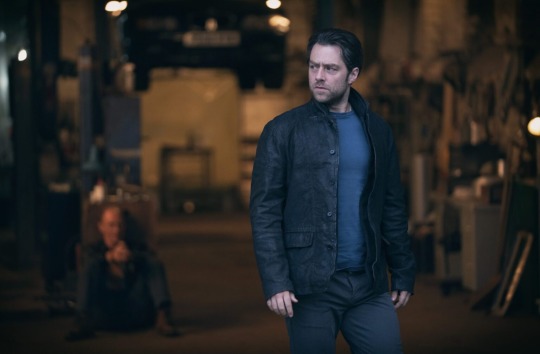
Richard Rankin as John Rebus (Image: Mark Mainz/Eleventh Hour Films)
The series promises to explore family, morality and class in an emotionally charged story, set against the Scottish landmarks that Rankin’s readers know so well.
Joining Richard Rankin (Outlander), the series also stars Lucie Shorthouse (Bulletproof), Brian Ferguson (The Ipcress File) and Amy Manson (The Nevers). Plus, Neshla Caplan, Noof Ousellam, Stuart Bowman, Caroline Lee Johnson, Sean Buchanan, Thoren Ferguson and Michelle Duncan.
Filming took place in Glasgow and Edinburgh last year.
Author Ian Rankin says:
“I’m thrilled that Rebus is coming to the BBC. A great cast and a compelling story – I really can’t wait for viewers to see it.”
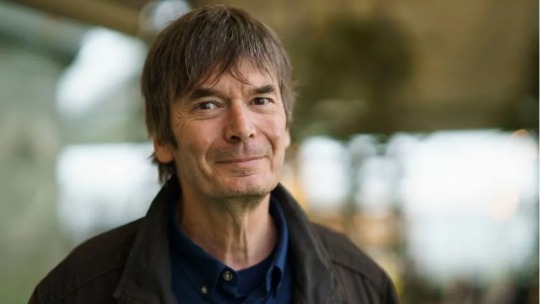
This is the first time the BBC has adapted Sir Ian Rankin's detective novels. 📸 Getty Images
Actor Richard Rankin adds:
“I am thrilled that Rebus will premiere on the BBC. It’s been an honour taking on the role of Ian Rankin’s renowned John Rebus. A character enjoyed by so many in such a fresh and original adaptation.”
The six-part series is directed by Niall MacCormick (Wallander) and Fiona Walton (Shetland) and is produced by Angela Murray. Paula Cuddy, Jill Green, Eve Gutierrez, Tomas Axelsson, Isabelle Hultén, Niall MacCormick, Gregory Burke and Ian Rankin are the Executive Producers.
Rebus will air on BBC Scotland, BBC One and BBC iPlayer later this spring.
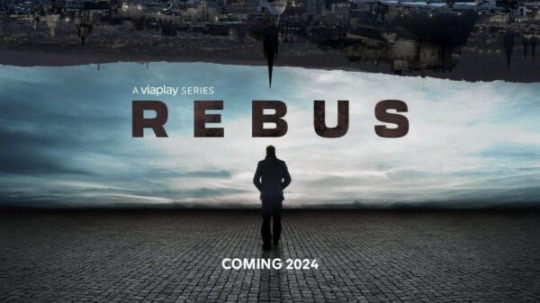
I'm waiting and watching 🍿
#Rebus #BBCScotland #BBCOne # BBCiPlayer #JohnRebus #DetectiveSergeant #Ian Rankin #novel #RichardRankin #EleventhHourFilms #Viaplay
29 notes
·
View notes
Text
World Building continued: Backstory for the wars involving Flower Hill, Teikoku, and Usuhan Jiyeog, and subsequent occupations.
Apologies in advance for this being so long. I wanted to know how widespread Japanese weasels are in real life, and found something interesting I could use.

Japanese weasels originate from three areas of Japan, that being Honshu, Kyushu, and Shikoku.

Coincidentally, Japan famously has three Ceremonial Regalia in the form of a sword, magatama beads, and a mirror. These items are not seen by anyone other than the royal family and certain priests (images on the internet are recreations of what they could possibly look like, and those seen in public are symbolic stand-ins), but they symbolize the authority of the royal family.
Which allows me to make a backstory for my AU to help explain the wars and occupations, very loosely based off of events and locations in history, especially since animal biology limits certain events from happening.
In the past, there was an Emperor, who preferred for Teikoku to be in isolation. Under his rule, and of those before him, are smaller prefectures run by princes, lords, or other lessor royal families.
Contact with the United States Alliance and other nations led to a period of aggression and imperialism surrounding the empire of Teikoku, as they strove to fight against a stagnating economy that believed in its own superiority in the world, as well as a strict caste system preventing innovation.
Eventually, after some time, three princes are sent out to conquer the final few neighboring islands, so that may join the empire, and provide a larger force for when they make a move for the peninsula and the mainland.
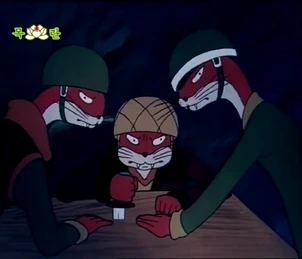
The three princes are named after their prefectures, and the Emperor has given them each one of the Imperial Regalia as proof of their superiority.
The Sword
Honshu is the main island of Japan, and is also known as the dragonfly island. Teikoku will call it Tonbo, which refers to dragonflies, which are fierce and deadly creatures. As such, their Imperial Regalia is the sword, Yūki no ken (the sword of valor), and is based off of Kusanagi-no-Tsurugi (Grass-Cutter). Tonbo is the main physical fighting force of Teikoku.
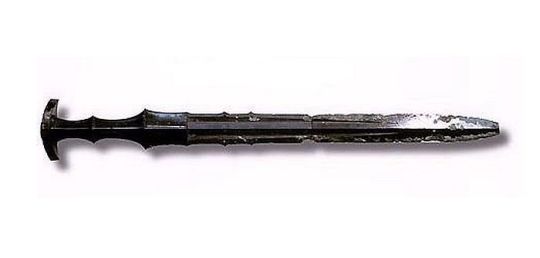
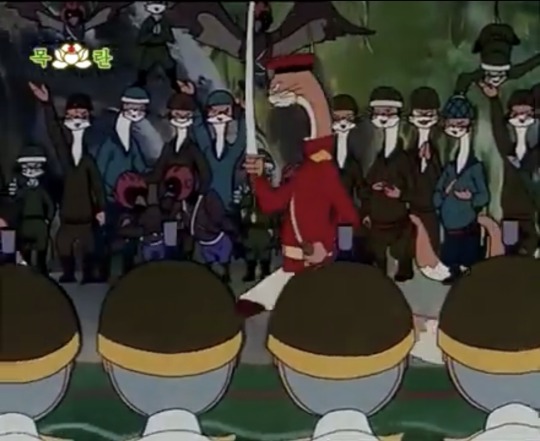
The Magatama Jewels
Kyushu is smaller than Honshu, but it had a lot of trade circuits around the ocean and the mountains. So I will make a prefecture named Kairo (Circuit), and have the area be responsible for trade and roads around the empire, as well as in the fighting forces. I would use the famous Magatama jewels (Benevolence) to symbolize their rule.

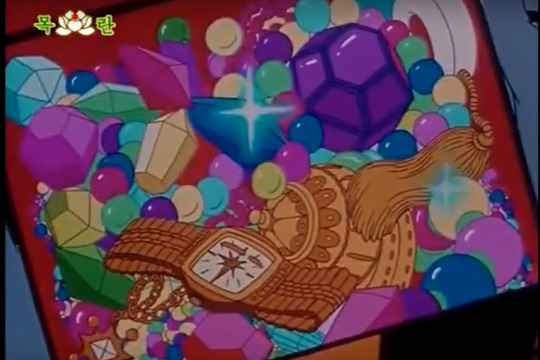
The Mirror
Shikoku means four provinces, and is the least populated area of the three areas. Shikoku also has a lot of temples (perhaps run by green pheasants, the national symbol of Japan), which draws in a lot of pilgrims. But they also maintain a lot of gateways to other prefectures. So maybe Genkan for entryway. They are responsible for planning and strategizing for the other two. They can have the Michi no kagami, mirror of the path to represent wisdom/truth, based on the Yata no Kagami.

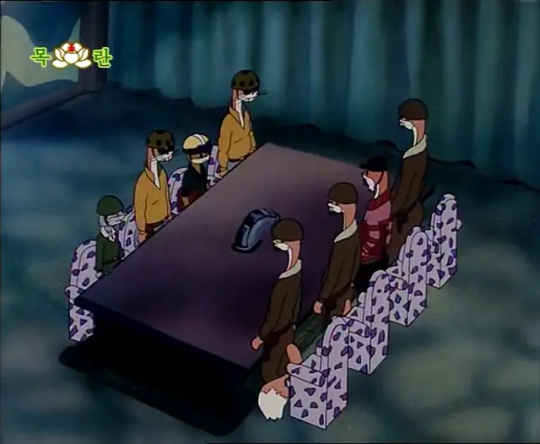
VERY loosely taking inspiration from The Tale of the Heike, a collection of Japanese epic poetry with many translations and retelling (actually written down 200 years after said events supposedly happened), which says that the royal families that held these Regalia were defeated in a naval battle, and threw themselves and the treasures into the sea. Subsequent legends suggest that many search and diving parties have been led to recover the Regalia.
In my AU, I hold that the items were thrown into the sea, with the princes believing that they could return for them later even if they were captured, although they managed to escape. It was a complete disgrace for the Emperor, as without the Ceremonial Regalia, the legitimacy of the entire palace was thrown into question.
And then the box holding the Magatama washed up on the shores of the peninsula.
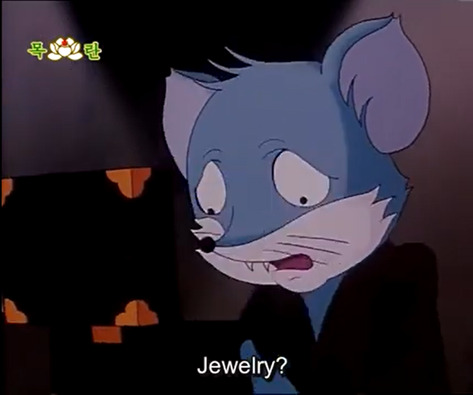
It is returned as a gesture of good will, but as no good deed goes unpunished, Teikoku believes that they must have taken the other Imperial Regalia for themselves, starting a land invasion. The small army is annihilated by farmers, fresh out of overthrowing their own monarchy, wielding guns, which Teikoku has never seen before.
Which results in a larger army being sent, which is also defeated and the princes captured and possibly executed by the hedgehog army in the north of the country. At this point, without the authority of the Ceremonial Regalia, and increasing economical desperation, the country is forced to undergo a reformation. While there is still an Emperor, he does not hold as much political power as he once did.
Teikoku left behind settlements of soldiers and colonists controlling the southern portion of the peninsula, which they name Usuhan Jiyeog, who take up ruler-ship and fish farming.
The hedgehogs use the proof of their power in defending their areas to take control of what they would name Flower Hill.

It is a strongly held belief that before they backed away from Usuhan Jiyeog, the Emperor promised that anyone who managed to retrieve the Ceremonial Regalia from Flower Hill would be reinstated as the next emperor, and be rewarded with power beyond their wildest dreams.
Did the other two, heavier, items, even wash up on the shores of the peninsula like the jewels, locked in an airtight box? Or did they sink to the bottom, as they were heavier? Who is to say...
But alongside the greed, desperation for power, and food production issues, the temptation of finding the supposedly stolen Imperial Regalia locked away in some distant stronghold is a good enough reason as any to attempt to occupy Flower Hill.
Now, I'm not about to retcon what I have already written and say that Commander Jogjebi wanted the sword and mirror, and Huinjogjebi is a weasel of science who would likely not be interested anyway. But claiming that Flower Hill stole precious items and symbols of their country in the past, and them not being able to disprove it, is enough of an excuse to make quite a few countries in the international courts turn a blind eye to the happenings surrounding Flower Hill.
Oil Production
I did figure out the oil and gas situation. I did go ahead and give the Jindo Empire a large amount of oil. The Venezuela country below the United States Alliance is now the República de Cultivos Oleaginosos, and is trying to prevent the wolves' country from occupying their regions.
Meanwhile, the vast majority of the world's oil in my AU is being produced in this country.
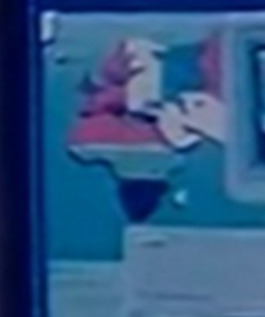
While it used to be many different nations in the past, the leaders understood that their vast oil and gas reserves would result in large scale invasions, and agreed to band together into the Equatorial Allegiance.
#no one in my AU is ending up as the new ruler of Teikoku#Mulmangcho might be a prince in Lily Bell but he is a home grown prince#I'll say that now#this is just supposed to be a footnote in the backstory of the AU#why does it have to be so detailed and complicated me?#I knew some of the legends of grass-cutter from overly sarcastic productions#but I learned about grass-cutter falling into the sea and possibly washing up from usagi yojimbo#sah#SaH#squirrel and hedgehog#lily bell in the thorn thicket#the rod that blocks the lightning#it would be like a normal (not Arthur) person showing up at the PM office with Excalibur or the bone of scone#and claiming to be the new king#I hope mixing and matching legends and such from different countries and time periods is an ok thing to do#I mean no one stopped me from writing 145K words on Korean farming so#There’s a few stories about Kusanagi-no-Tsurugi and Yata no Kagami#Items like them show up in anime a lot but I wasn’t even thinking of it when I wrote this#kind of wanted a whole Yamatai and the sun queen descendants plot line for the giggles#but Yamatai might just be Kyushu
14 notes
·
View notes
Text
Tom Hiddleston & Mark Hamill To Star In Stephen King Adaptation ‘The Life Of Chuck’ For Director Mike Flanagan
Tom Hiddleston (Thor franchise) and Mark Hamill (Star Wars) are set to star in new Stephen King adaptation The Life Of Chuck, which will be a hot package at the upcoming Cannes market.
Doctor Sleep and The Haunting Of Hill House helmer Mike Flanagan is directing, scripting and producing for Intrepid Pictures alongside fellow producer Trevor Macy.
FilmNation will handle international sales with WME Independent handling domestic.
Based on the short story from King’s 2020 anthology If It Bleeds, The Life of Chuck is three separate stories linked to tell the biography of Charles Krantz in reverse, beginning with his death from a brain tumour at 39 and ending with his childhood in a supposedly haunted house.
The script, which was adapted prior to the WGA strike, has been in the works for several months with Hiddleston set to play the title character and Hamill joining for the role of Albie.
According to the production, the genre project will draw tonally from Stand By Me, The Shawshank Redemption and The Green Mile.
Golden Globe and Olivier winner Hiddleston is best known for Thor, Avengers and TV series The Night Manager, as well as stage projects such as Betrayal and Hamlet for Ken Branagh.
Hamill is best known for his portrayal of Luke Skywalker in the original Star Wars movies and reprised his role in both the sequels as well as the second season of The Mandalorian and season one of The Book of Boba Fett. He recently appeared in Netflix’s Sandman, and will star in Sony’s upcoming The Machine and in Intrepid and Netflix’s House Of Usher, which will air later this year.
Stephen King, aka ‘The King Of Horror’, is among the all-time best-selling authors. Among his books and short stories to have been adapted into hit movies are Carrie, The Shining, Pet Sematary, It, Stand By Me, The Running Man, The Shawshank Redemption, and The Green Mile.
This is the latest project to join a bumper Cannes market slate for FilmNation. Also on the lineup are Amy Adams-Paul Rudd comedy The Invite, Dave Bautista action-thriller The Cooler, and Andrew Garfield project Voyagers, among others.
#tom hiddleston#mark hamill#mike flanagan#Stephen King#the life of chuck#Upcoming work#Article#deadline hollywood
138 notes
·
View notes
Text
youtube
9th December 1770 saw the birth of the poet and novelist James Hogg.
Hogg is primarily known today not only as the author of a series of pastoral poems, but also as the writer of the novel, Confessions of a Justified Sinner, widely regarded as the first piece of modern Scottish fiction.
A contrary figure in real life, Hogg almost bankrupted himself in attempts to be a successful shepherd - leading to his literary friends dubbing him "the Ettrick Shepherd".
There were two main strands to Hogg’s early cultural experience: folk traditions and religion. The family were church-goers and his father was an elder, while his mother was steeped in the oral tradition, relating to her children folk tales and songs of kings, knights and supernatural beings.
With no media ,as we know it back then Hogg would have listened reel off tales of Scottish history and legends as he was growing up. As a young man Hogg worked as a shepherd in Selkirkshire and Dumfriesshire, becoming interested in literature in his early twenties, when he attempted writing songs and poems, some of which were published in The Scots Magazine. He moved to Edinburgh in 1810 to pursue a career as a full-time man of letters, after having published poetry and non-fiction while maintaining his day-job as a shepherd. However, in 1813 he returned to Selkirkshire, where he lived and worked in the Duke of Buccleuch's Altrive Farm in Yarrow.
He continued to publish regularly while maintaining a contentious relationship with the Edinburgh literati, including his friend and some-time mentor, Walter Scott.
Many of Hogg's stories and poems appeared in Blackwood's Edinburgh Magazine, or Maga as it was affectionately known.
Hogg continued to write, publish and farm until his death in 1835. He was buried in Ettrick Churchyard, appropriately next to his grandfather, Will o’ Phaup, who is reputed to have been the last man to converse with the fairies!
Among Hogg's most famous works was Jacobite Relics - originally commissioned by the Highland Society of London in 1817, it included Lament of Flora McDonald, sung here by Kenneth McKellar
Far over yon hills of the heather sae green An' doun by the corrie that sings to the sea, The bonnie young Flora sat sighin' her lane, The dew on her plaid an' the tear in her e'e. She look'd at a boat wi' the breezes that swung, Away on the wave like a bird on the main, An' aye as it lessen'd she sigh'd an' she sung, "Fareweel to the lad I shall ne'er see again; Fareweel to my hero, the gallant and young, Fareweel to the lad I shall ne'er see again."
The moorcock that crows on the brows o' Ben Connal, He kens o' his bed in a sweet mossy hame; The eagle that soars o'er the cliffs o' Clan Ranald, Unaw'd and unhunted his eyrie can claim; The solan can sleep on the shelves of the shore, The cormorant roost on his rock of the sea; But ah! there is one whose fate I deplore, Nor house, ha' nor hame in this country has he; The conflict is past, and our name is no more, There's nought left but sorrow for Scotland and me.
The target is torn from the arm of the just, The helmet is cleft on the brow of the brave; The claymore forever in darkness must rust, But red is the sword of the stranger and slave; The hoof of the horse, and the foot of the proud, Have trod o'er the plumes on the bonnet of blue; Why slept the red bolt in the breast of the cloud, When tyranny revell'd in blood of the true? Fareweel my young hero, the gallant and good, The crown of thy father's is torn from thy brow.
21 notes
·
View notes
Text
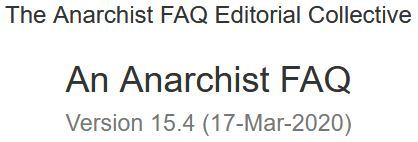
A.3.9 What is anarcho-primitivism?
As discussed in section A.3.3, most anarchists would agree with Situationist Ken Knabb in arguing that “in a liberated world computers and other modern technologies could be used to eliminate dangerous or boring tasks, freeing everyone to concentrate on more interesting activities.” Obviously ”[c]ertain technologies — nuclear power is the most obvious example — are indeed so insanely dangerous that they will no doubt be brought to a prompt halt. Many other industries which produce absurd, obsolete or superfluous commodities will, of course, cease automatically with the disappearance of their commercial rationales. But many technologies …, however they may presently be misused, have few if any inherent drawbacks. It’s simply a matter of using them more sensibly, bringing them under popular control, introducing a few ecological improvements, and redesigning them for human rather than capitalistic ends.” [Public Secrets, p. 79 and p. 80] Thus most eco-anarchists see the use of appropriate technology as the means of creating a society which lives in balance with nature.
However, a small but vocal minority of self-proclaimed Green anarchists disagree. Writers such as John Zerzan, John Moore and David Watson have expounded a vision of anarchism which, they claim, aims to critique every form of power and oppression. This is often called “anarcho-primitivism,” which according to Moore, is simply “a shorthand term for a radical current that critiques the totality of civilisation from an anarchist perspective, and seeks to initiate a comprehensive transformation of human life.” [Primitivist Primer]
How this current expresses itself is diverse, with the most extreme elements seeking the end of all forms of technology, division of labour, domestication, “Progress”, industrialism, what they call “mass society” and, for some, even symbolic culture (i.e. numbers, language, time and art). They tend to call any system which includes these features “civilisation” and, consequently, aim for “the destruction of civilisation”. How far back they wish to go is a moot point. Some see the technological level that existed before the Industrial Revolution as acceptable, many go further and reject agriculture and all forms of technology beyond the most basic. For them, a return to the wild, to a hunter-gatherer mode of life, is the only way for anarchy is exist and dismiss out of hand the idea that appropriate technology can be used to create an anarchist society based on industrial production which minimises its impact on ecosystems.
Thus we find the primitivist magazine “Green Anarchy” arguing that those, like themselves, “who prioritise the values of personal autonomy or wild existence have reason to oppose and reject all large-scale organisations and societies on the grounds that they necessitate imperialism, slavery and hierarchy, regardless of the purposes they may be designed for.” They oppose capitalism as it is “civilisation’s current dominant manifestation.” However, they stress that it is “Civilisation, not capitalism per se, was the genesis of systemic authoritarianism, compulsory servitude and social isolation. Hence, an attack upon capitalism that fails to target civilisation can never abolish the institutionalised coercion that fuels society. To attempt to collectivise industry for the purpose of democratising it is to fail to recognise that all large-scale organisations adopt a direction and form that is independent of its members’ intentions.” Thus, they argue, genuine anarchists must oppose industry and technology for ”[h]ierarchical institutions, territorial expansion, and the mechanisation of life are all required for the administration and process of mass production to occur.” For primitivists, ”[o]nly small communities of self-sufficient individuals can coexist with other beings, human or not, without imposing their authority upon them.” Such communities would share essential features with tribal societies, ”[f]or over 99% of human history, humans lived within small and egalitarian extended family arrangements, while drawing their subsistence directly from the land.” [Against Mass Society]
While such tribal communities, which lived in harmony with nature and had little or no hierarchies, are seen as inspirational, primitivists look (to use the title of a John Zerzan book) forward to seeing the “Future Primitive.” As John Moore puts it, “the future envisioned by anarcho-primitivism … is without precedent. Although primitive cultures provide intimations of the future, and that future may well incorporate elements derived from those cultures, an anarcho-primitivist world would likely be quite different from previous forms of anarchy.” [Op. Cit.]
For the primitivist, other forms of anarchism are simply self-managed alienation within essentially the same basic system we now endure. Hence Moore’s comment that “classical anarchism” wants “to take over civilisation, rework its structures to some degree, and remove its worst abuses and oppressions. However, 99% of life in civilisation remains unchanged in their future scenarios, precisely because the aspects of civilisation they question are minimal … overall life patterns wouldn’t change too much.” Thus ”[f]rom the perspective of anarcho-primitivism, all other forms of radicalism appear as reformist, whether or not they regard themselves as revolutionary.” [Op. Cit.]
In reply, “classical anarchists” point out three things. Firstly, to claim that the “worst abuses and oppressions” account for 1% of capitalist society is simply nonsense and, moreover, something an apologist of that system would happily agree with. Secondly, it is obvious from reading any “classical” anarchist text that Moore’s assertions are nonsense. “Classical” anarchism aims to transform society radically from top to bottom, not tinker with minor aspects of it. Do primitivists really think that people who went to the effort to abolish capitalism would simply continue doing 99% of the same things they did before hand? Of course not. In other words, it is not enough to get rid of the boss, although this is a necessary first step! Thirdly, and most importantly, Moore’s argument ensures that his new society would be impossible to reach.
So, as can be seen, primitivism has little or no bearing to the traditional anarchist movement and its ideas. The visions of both are simply incompatible, with the ideas of the latter dismissed as authoritarian by the former and anarchists questioning whether primitivism is practical in the short term or even desirable in the long. While supporters of primitivism like to portray it as the most advanced and radical form of anarchism, others are less convinced. They consider it as a confused ideology which draws its followers into absurd positions and, moreover, is utterly impractical. They would agree with Ken Knabb that primitivism is rooted in “fantasies [which] contain so many obvious self-contradictions that it is hardly necessary to criticise them in any detail. They have questionable relevance to actual past societies and virtually no relevance to present possibilities. Even supposing that life was better in one or another previous era, we have to begin from where we are now. Modern technology is so interwoven with all aspects of our life that it could not be abruptly discontinued without causing a global chaos that would wipe out billions of people.” [Op. Cit., p. 79]
The reason for this is simply that we live in a highly industrialised and interconnected system in which most people do not have the skills required to live in a hunter-gatherer or even agricultural society. Moreover, it is extremely doubtful that six billion people could survive as hunter-gatherers even if they had the necessary skills. As Brian Morris notes, ”[t]he future we are told is ‘primitive.’ How this is to be achieved in a world that presently sustains almost six billion people (for evidence suggests that the hunter-gatherer lifestyle is only able to support 1 or 2 people per sq. mile)” primitivists like Zerzan do not tell us. [“Anthropology and Anarchism,” pp. 35–41, Anarchy: A Journal of Desire Armed, no. 45, p. 38] Most anarchists, therefore, agree with Chomsky’s summation that “I do not think that they are realising that what they are calling for is the mass genocide of millions of people because of the way society is now structured and organised … If you eliminate these structures everybody dies … And, unless one thinks through these things, it’s not really serious.” [Chomsky on Anarchism, p. 226]
Somewhat ironically, many proponents of primitivsm agree with its critics that the earth would be unable to support six billion living as a hunter-gatherers. This, critics argue, gives primitivism a key problem in that population levels will take time to fall and so any “primitivist” rebellion faces two options. Either it comes about via some kind of collapse of “civilisation” or it involves a lengthy transition period during which “civilisation” and its industrial legacies are decommissioned safely, population levels drop naturally to an appropriate level and people gain the necessary skills required for their new existence.
The problems with the first option should be obvious but, sadly, it is implied by many primitivist writers. Moore, for example, talks about “when civilisation collapses” (“through its own volition, through our efforts, or a combination of the two”). This implies an extremely speedy process which is confirmed when he talks about the need for “positive alternatives” to be built now as “the social disruption caused by collapse could easily create the psychological insecurity and social vacuum in which fascism and other totalitarian dictatorships could flourish.” [Op. Cit.] Social change based on “collapse,” “insecurity” and “social disruption” does not sound like a recipe for a successful revolution.
Then there are the anti-organisation dogmas expounded by primitivism. Moore is typical, asserting that ”[o]rganisations, for anarcho-primitivists, are just rackets, gangs for putting a particular ideology in power” and reiterates the point by saying primitivists stand for “the abolition of all power relations, including the State . .. and any kind of party or organisation.” [Op. Cit.] Yet without organisation, no modern society could function. There would be a total and instant collapse which would see not only mass starvation but also ecological destruction as nuclear power stations meltdown, industrial waste seeps into the surrounding environment, cities and towns decay and hordes of starving people fighting over what vegetables, fruits and animals they could find in the countryside. Clearly an anti-organisation dogma can only be reconciled with the idea of a near overnight “collapse” of civilisation, not with a steady progress towards a long term goal. Equally, how many “positive alternatives” could exist without organisation?
Moore dismissed any critique that points out that a collapse would cause mass destruction as “just smear tactics,” “weird fantasies spread by some commentators hostile to anarcho-primitivism who suggest that the population levels envisaged by anarcho-primitivists would have to be achieved by mass die-offs or nazi-style death camps.” The “commitment of anarcho-primitivists to the abolition of all power relations … means that such orchestrated slaughter remains an impossibility as well as just plain horrendous.” [Op. Cit.] Yet no critic is suggesting that primitivists desire such a die-off or seek to organise it. They simply point out that the collapse of civilisation would result in a mass die-off due to the fact that most people do not have the skills necessary to survive it nor could the Earth provide enough food for six billion people trying to live in a primitivist manner. Other primitivists have asserted that it can, stating ”[i]t is not possible for all six billion of the planet’s current inhabitants to survive as hunter-gatherers, but it is possible for those who can’t to grow their own food in significantly smaller spaces … as has been demonstrated by permaculture, organic gardening, and indigenous horticulture techniques.” [Against Mass Society] Unfortunately no evidence was provided to show the truth of this assertion nor that people could develop the necessary skills in time even if it were. It seems a slim hope to place the fate of billions on, so that humanity can be “wild” and free from such tyrannies as hospitals, books and electricity.
Faced with the horrors that such a “collapse” would entail, those primitivists who have thought the issue through end up accepting the need for a transition period. John Zerzan, for example, argues that it “seems evident that industrialisation and the factories could not be gotten rid of instantly, but equally clear that their liquidation must be pursued with all the vigour behind the rush of break-out.” Even the existence of cities is accepted, for ”[c]ultivation within the cities is another aspect of practical transition.” [On the Transition: Postscript to Future Primitive]
However, to accept the necessity of a transition period does little more than expose the contradictions within primitivism. Zerzan notes that “the means of reproducing the prevailing Death Ship (e.g. its technology) cannot be used to fashion a liberated world.” He ponders: “What would we keep? ‘Labour-saving devices?’ Unless they involve no division of labour (e.g. a lever or incline), this concept is a fiction; behind the ‘saving’ is hidden the congealed drudgery of many and the despoliation of the natural world.” How this is compatible with maintaining “industrialisation and the factories” for a (non-specified) period is unclear. Similarly, he argues that ”[i]nstead of the coercion of work — and how much of the present could continue without precisely that coercion? — an existence without constraints is an immediate, central objective.” [Op. Cit.] How that is compatible with the arguing that industry would be maintained for a time is left unasked, never mind unanswered. And if “work” continues, how is this compatible with the typical primitivist dismissal of “traditional” anarchism, namely that self-management is managing your own alienation and that no one will want to work in a factory or in a mine and, therefore, coercion will have to be used to make them do so? Does working in a self-managed workplace somehow become less alienating and authoritarian during a primitivist transition?
It is an obvious fact that the human population size cannot be reduced significantly by voluntary means in a short period of time. For primitivism to be viable, world population levels need to drop by something like 90%. This implies a drastic reduction of population will take decades, if not centuries, to achieve voluntarily. Given that it is unlikely that (almost) everyone on the planet will decide not to have children, this time scale will almost certainly be centuries and so agriculture and most industries will have to continue (and an exodus from the cities would be impossible immediately). Likewise, reliable contraceptives are a product of modern technology and, consequently, the means of producing them would have to maintained over that time — unless primitivists argue that along with refusing to have children, people will also refuse to have sex.
Then there is the legacy of industrial society, which simply cannot be left to decay on its own. To take just one obvious example, leaving nuclear power plants to melt down would hardly be eco-friendly. Moreover, it is doubtful that the ruling elite will just surrender its power without resistance and, consequently, any social revolution would need to defend itself against attempts to reintroduce hierarchy. Needless to say, a revolution which shunned all organisation and industry as inherently authoritarian would not be able to do this (it would have been impossible to produce the necessary military supplies to fight Franco’s fascist forces during the Spanish Revolution if the workers had not converted and used their workplaces to do so, to note another obvious example).
Then there is another, key, contradiction. For if you accept that there is a need for a transition from ‘here’ to ‘there’ then primitivism automatically excludes itself from the anarchist tradition. The reason is simple. Moore asserts that “mass society” involves “people working, living in artificial, technologised environments, and [being] subject to forms of coercion and control.” [Op. Cit.] So if what primitivists argue about technology, industry and mass society are all true, then any primitivist transition would, by definition, not be libertarian. This is because “mass society” will have to remain for some time (at the very least decades, more likely centuries) after a successful revolution and, consequently from a primitivist perspective, be based on “forms of coercion and control.” There is an ideology which proclaims the need for a transitional system which will be based on coercion, control and hierarchy which will, in time, disappear into a stateless society. It also, like primitivism, stresses that industry and large scale organisation is impossible without hierarchy and authority. That ideology is Marxism. Thus it seems ironic to “classical” anarchists to hear self-proclaimed anarchists repeating Engels arguments against Bakunin as arguments for “anarchy” (see section H.4 for a discussion of Engels claims that industry excludes autonomy).
So if, as seems likely, any transition will take centuries to achieve then the primivitist critique of “traditional” anarchism becomes little more than a joke — and a hindrance to meaningful anarchist practice and social change. It shows the contradiction at the heart of primitivism. While its advocates attack other anarchists for supporting technology, organisation, self-management of work, industrialisation and so on, they are themselves are dependent on the things they oppose as part of any humane transition to a primitivist society. And given the passion with which they attack other anarchists on these matters, unsurprisingly the whole notion of a primitivist transition period seems impossible to other anarchists. To denounce technology and industrialism as inherently authoritarian and then turn round and advocate their use after a revolution simply does not make sense from a logical or libertarian perspective.
Thus the key problem with primitivism can be seen. It offers no practical means of achieving its goals in a libertarian manner. As Knabb summarises, ”[w]hat begins as a valid questioning of excessive faith in science and technology ends up as a desperate and even less justified faith in the return of a primeval paradise, accompanied by a failure to engage the present system in any but an abstract, apocalyptical way.” To avoid this, it is necessary to take into account where we are now and, consequently, we will have to “seriously consider how we will deal with all the practical problems that will be posed in the interim.” [Op. Cit., p. 80 and p. 79] Sadly, primitivist ideology excludes this possibility by dismissing the starting point any real revolution would begin from as being inherently authoritarian. Moreover, they are blocking genuine social change by ensuring that no mass movement would ever be revolutionary enough to satisfy their criteria:
“Those who proudly proclaim their ‘total opposition’ to all compromise, all authority, all organisation, all theory, all technology, etc., usually turn out to have no revolutionary perspective whatsoever — no practical conception of how the present system might be overthrown or how a post-revolutionary society might work. Some even attempt to justify this lack by declaring that a mere revolution could never be radical enough to satisfy their eternal ontological rebelliousness. Such all-or-nothing bombast may temporarily impress a few spectators, but its ultimate effect is simply to make people blasé.” [Knabb, Op. Cit., pp. 31–32]
Then there is the question of the means suggested for achieving primitivism. Moore argues that the “kind of world envisaged by anarcho-primitivism is one unprecedented in human experience in terms of the degree and types of freedom anticipated ... so there can’t be any limits on the forms of resistance and insurgency that might develop.” [Op. Cit.] Non-primitivists reply by saying that this implies primitivists don’t know what they want nor how to get there. Equally, they stress that there must be limits on what are considered acceptable forms of resistance. This is because means shape the ends created and so authoritarian means will result in authoritarian ends. Tactics are not neutral and support for certain tactics betray an authoritarian perspective.
This can be seen from the UK magazine “Green Anarchist,” part of the extreme end of “Primitivism.” Due to its inherent unattractiveness for most people, it could never come about by libertarian means (i.e. by the free choice of individuals who create it by their own acts) and so cannot be anarchist as very few people would actually voluntarily embrace such a situation. This led to “Green Anarchist” developing a form of eco-vanguardism in order, to use Rousseau’s expression, to “force people to be free.” This was expressed when the magazine supported the actions and ideas of the (non-anarchist) Unabomber and published an article (“The Irrationalists”) by one its editors stating that “the Oklahoma bombers had the right idea. The pity was that they did not blast any more government offices … The Tokyo sarin cult had the right idea. The pity was that in testing the gas a year prior to the attack they gave themselves away.” [Green Anarchist, no. 51, p. 11] A defence of these remarks was published in the next issue and a subsequent exchange of letters in the US-based Anarchy: A Journal of Desire Armed magazine (numbers 48 to 52) saw the other editor justify this sick, authoritarian nonsense as simply examples of “unmediated resistance” conducted “under conditions of extreme repression.” Whatever happened to the anarchist principle that means shape the ends? This means there are “limits” on tactics, as some tactics are not and can never be libertarian.
However, few primitivists take such an extreme position. Most “primitivist” anarchists rather than being anti-technology and anti-civilisation as such instead (to use David Watson’s expression) believe it is a case of the “affirmation of aboriginal lifeways” and of taking a far more critical approach to issues such as technology, rationality and progress than that associated with Social Ecology. These eco-anarchists reject “a dogmatic primitivism which claims we can return in some linear way to our primordial roots” just as much as the idea of “progress,” ”superseding both Enlightenment and Counter-Enlightenment” ideas and traditions. For them, Primitivism “reflects not only a glimpse at life before the rise of the state, but also a legitimate response to real conditions of life under civilisation” and so we should respect and learn from “palaeolithic and neolithic wisdom traditions” (such as those associated with Native American tribes and other aboriginal peoples). While we “cannot, and would not want to abandon secular modes of thinking and experiencing the world… we cannot reduce the experience of life, and the fundamental, inescapable questions why we live, and how we live, to secular terms… Moreover, the boundary between the spiritual and the secular is not so clear. A dialectical understanding that we are our history would affirm an inspirited reason that honours not only atheistic Spanish revolutionaries who died for el ideal, but also religious pacifist prisoners of conscience, Lakota ghost dancers, taoist hermits and executed sufi mystics.” [David Watson, Beyond Bookchin: Preface for a future social ecology, p. 240, p. 103, p. 240 and pp. 66–67]
Such “primitivist” anarchism is associated with a range of magazines, mostly US-based, like Fifth Estate. For example, on the question of technology, they argue that ”[w]hile market capitalism was a spark that set the fire, and remains at the centre of the complex, it is only part of something larger: the forced adaptation of organic human societies to an economic-instrumental civilisation and its mass technics, which are not only hierarchical and external but increasingly ‘cellular’ and internal. It makes no sense to layer the various elements of this process in a mechanistic hierarchy of first cause and secondary effects.” [Watson, Op. Cit., pp. 127–8] For this reason primitivists are more critical of all aspects of technology, including calls by social ecologists for the use of appropriate technology essential in order to liberate humanity and the planet:
“To speak of technological society is in fact to refer to the technics generated within capitalism, which in turn generate new forms of capital. The notion of a distinct realm of social relations that determine this technology is not only ahistorical and undialectical, it reflects a kind of simplistic base/superstructure schema.” [Watson, Op. Cit., p. 124]
Thus it is not a case of who uses technology which determines its effects, rather the effects of technology are determined to a large degree by the society that creates it. In other words, technology is selected which tends to re-enforce hierarchical power as it is those in power who generally select which technology is introduced within society (saying that, oppressed people have this excellent habit of turning technology against the powerful and technological change and social struggle are inter-related — see section D.10). Thus even the use of appropriate technology involves more than selecting from the range of available technology at hand, as these technologies have certain effects regardless of who uses them. Rather it is a question of critically evaluating all aspects of technology and modifying and rejecting it as required to maximise individual freedom, empowerment and happiness. Few Social Ecologists would disagree with this approach, though, and differences are usually a question of emphasis rather than a deep political point.
However, few anarchists are convinced by an ideology which, as Brian Morris notes, dismisses the “last eight thousand years or so of human history” as little more than a source “of tyranny, hierarchical control, mechanised routine devoid of any spontaneity. All those products of the human creative imagination — farming, art, philosophy, technology, science, urban living, symbolic culture — are viewed negatively by Zerzan — in a monolithic sense.” While there is no reason to worship progress, there is just as little need to dismiss all change and development out of hand as oppressive. Nor are they convinced by Zerzan’s “selective culling of the anthropological literature.” [Op. Cit., p. 38] Most anarchists would concurr with Murray Bookchin:
“The ecology movement will never gain any real influence or have any significant impact on society if it advances a message of despair rather than hope, of a regressive and impossible return to primordial human cultures, rather than a commitment to human progress and to a unique human empathy for life as a whole … We must recover the utopian impulses, the hopefulness, the appreciation of what is good, what is worth rescuing in yumn civilisation, as well as what must be rejected, if the ecology movement is to play a transformative and creative role in human affairs. For without changing society, we will not change the diastrous ecological direction in which capitalism is moving.” [The Ecology of Freedom, p. 63]
In addition, a position of “turning back the clock” is deeply flawed, for while some aboriginal societies are very anarchistic, not all are. As anarchist anthropologist David Graeber points out, “we know almost nothing about like in Palaeolithic, other than the sort of thing that can be gleaned from studying very old skulls … But what we see in the more recent ethnographic records is endless variety. There were hunter-gatherer societies with nobles and slaves, there are agrarian societies that are fiercely egalitarian. Even in … Amazonia, one finds some groups who can justly be described as anarchists, like the Piaroa, living alongside others (say, the warlike Sherentre, who are clearly anything but.” [Fragments of an Anarchist Anthropology, pp. 53–4] Even if we speculate, like Zerzan, that if we go back far enough we would find all of humanity in anarchistic tribes, the fact remains that certain of these societies did develop into statist, propertarian ones implying that a future anarchist society that is predominantly inspired by and seek to reproduce key elements of prehistoric forms of anarchy is not the answer as “civilisation” may develop again due to the same social or environmental factors.
Primitivism confuses two radically different positions, namely support for a literal return to primitive lifeways and the use of examples from primitive life as a tool for social critique. Few anarchists would disagree with the second position as they recognise that current does not equal better and, consequently, past cultures and societies can have positive (as well as negative) aspects to them which can shed light on what a genuinely human society can be like. Similarly if “primitivism” simply involved questioning technology along with authority, few would disagree. However, this sensible position is, in the main, subsumed within the first one, the idea that an anarchist society would be a literal return to hunter-gatherer society. That this is the case can be seen from primitivist writings (some primitivists say that they are not suggesting the Stone Age as a model for their desired society nor a return to gathering and hunting, yet they seem to exclude any other options by their critique).
So to suggest that primitivism is simply a critique or some sort of “anarchist speculation” (to use John Moore’s term) seems incredulous. If you demonise technology, organisation, “mass society” and “civilisation” as inherently authoritarian, you cannot turn round and advocate their use in a transition period or even in a free society. As such, the critique points to a mode of action and a vision of a free society and to suggest otherwise is simply incredulous. Equally, if you praise foraging bands and shifting horticultural communities of past and present as examples of anarchy then critics are entitled to conclude that primitivists desire a similar system for the future. This is reinforced by the critiques of industry, technology, “mass society” and agriculture.
Until such time as “primitivists” clearly state which of the two forms of primitivism they subscribe to, other anarchists will not take their ideas that seriously. Given that they fail to answer such basic questions of how they plan to deactivate industry safely and avoid mass starvation without the workers’ control, international links and federal organisation they habitually dismiss out of hand as new forms of “governance,” other anarchists do not hold much hope that it will happen soon. Ultimately, we are faced with the fact that a revolution will start in society as it is. Anarchism recognises this and suggests a means of transforming it. Primitivism shies away from such minor problems and, consequently, has little to recommend it in most anarchists’ eyes.
This is not to suggest, of course, that non-primitivist anarchists think that everyone in a free society must have the same level of technology. Far from it. An anarchist society would be based on free experimentation. Different individuals and groups will pick the way of life that best suits them. Those who seek less technological ways of living will be free to do so as will those who want to apply the benefits of (appropriate) technologies. Similarly, all anarchists support the struggles of those in the developing world against the onslaught of (capitalist) civilisation and the demands of (capitalist) progress.
For more on “primitivist” anarchism see John Zerzan’s Future Primitive as well as David Watson’s Beyond Bookchin and Against the Mega-Machine. Ken Knabb’s essay The Poverty of Primitivism is an excellent critique of primitivism as is Brian Oliver Sheppard’s Anarchism vs. Primitivism.
#faq#anarchy faq#revolution#anarchism#daily posts#communism#anti capitalist#anti capitalism#late stage capitalism#organization#grassroots#grass roots#anarchists#libraries#leftism#social issues#economy#economics#climate change#climate crisis#climate#ecology#anarchy works#environmentalism#environment#solarpunk#anti colonialism#mutual aid#cops#police
14 notes
·
View notes
Text
Murder on the Orient Express, adapted for the stage by Ken Ludwig, directed by Risa Brainin, performed at the Minneapolis Guthrie Theater

Ah, the theatre. I'm the type of person that spells it "Theatre" too, which is still technically correct in US English, because it got stuck in my brain in high school and never left. It's just in my muscle memory now and I'm not going to excise it anytime soon.
Anyway, I love the theatre. I had a fit last summer when I listened to 29/37 of Shakespeare's plays, not really feeling the vibe to listen to this historical plays because I don't exactly have that preexisting historical knowledge to enjoy them (they're very dry too, but that's beyond the point right now). I think live performances of all kinds are a lot of fun and can showcase how powerful the stories we tell can be.
I saw Hamlet at the same theatre the week before I came to see Murder on the Orient Express, so my Shakespeare tangent is appropriate. The Guthrie Theater is one of the greats of Minneapolis/Minnesota institutions, it's hard to ignore the building, half due to it's shape, but also because it's right on the river among a bunch of historic buildings, including the Mill City Museum (one of my favorites). I feel like every major US city has "The Theater" capital T and T, where you go to see some big productions, and that's the Guthrie for Minneapolis. There's plenty of smaller theatres in the city that I still patronize, but my housemate got our household tickets for Christmas for some shows, and as we're all big fans of stage productions in this house, we were all excited to go.
We all know this story, we know the author, we know it's a train. But not everyone knows it's ending. If you've never consumed the original book or adaptation of this story before, go do that first. For one, this play adaptation differs greatly enough that I think some original context will be missed in the content provided, but also, there's a reason this is a beloved story we adapt and retell hell over. It's just that good. Agatha Christie was just that Fucking good. the content warnings for Murder on the Orient Express are as follows: child death, child murder, miscarriage/death of the mother resulting in loss of the unborn child, kidnapping, racism, references to suicide, references to eugenics, murder, blackmail, drug abuse
you know this story
If you're someone under the age of 100 years old and has spent any time in the western world, you probably know that Murder on the Orient Express exists and who Agatha Christie is.
For documentation's sake, Murder on the Orient Express is a detective fiction novel written by Agatha Christie that was first published on January 1st, 1934 in the UK. It was published about 2 months later in the US under the name "Murder in the Calais Coach". This was due to the novel Stamboul Train by Graham Greene originally published in 1932 in the UK had it's title changed to "Orient Express" when published in the US.
Searching "Murder in the Calais Coach" is I think different enough of a title and this is an obscure enough fact that you'll more often than not get results about "Agatha Christie's premiere Poirot novel" and vintage copies of the book, like the one below I found on ebay.

I'm sure that everyone is familiar with the changing of titles across country lines, a trend that I believe has died out, save for titles with direct translations for example. There is probably a more well known title change with a Christie novel, that has gone under several revised titles over time. (Which is incidentally my favorite Christie novel. for better or for worse.)
But the premise of this story is well understood, Hercule Poirot, a Belgian detective, boards the titular Orient Express, where therein a murder takes place. The case that is presented to Poirot is the most challenging that he admits to ever undertaking, not just intellectually taxing, but taxing on his very soul.
This story has been adapted a million times since the book's original publication. This particular play adaptation by Ken Ludwig was originally performed in 2017 at the McCarter Theatre in Princeton, New Jersey. (Here's a really fun video interview with the costume designer for that original show, William Ivey Long, about his work on it)
Ken Ludwig has adapted several other plays, and especially notable to me, Baskerville: A Sherlock Holmes Mystery, which is billed as comedy. I think that in that context, it makes sense for how his adaptation of the play shook out. We'll talk about that later. it's not a christie novel without a colorful cast
The original story's cast includes 17 unique characters and 12 of which are suspects in the murder of the victim. In a book format, this works for the story being told I think. 12 suspects is a lot of people to have to keep track of. If you expect to keep track of all the suspects of a mystery story, a sweet spot number is around 5-6. You can push it as high as 10, but just so long as you can cut that down pretty quickly. It's hard to have an audience keep up with all possibilities and what makes it less fun of a game/whodunnit that we love about these kinds of stories.
Christie's work does trend on having a higher amount of suspects, to heighten the drama of the story. The way that Christie deals with these high suspect counts is to make every character incredibly unique. She excels at doing this quite honestly, especially in Murder on the Orient Express. There is an even split of men and women, every character's occupation is different, their nationalities are all different, etc. You are never going to confuse a character for another because their characterization is always incredibly strong.
The play adaptation cuts the amount of characters in the story from 17 to 12, and the suspect list from 12 to 8. Like I said earlier, the less amount of suspects to keep track of during a mystery, the better. But there's a more logical reason for this too, stages are smaller than you think. If in the final scene of the show all 12 of the original characters in their original ways were present, there would be 15 people on stage at the same time. While there's no high octane action to choreograph about, 15 people is much harder to manage as opposed to the 10 that were on stage in the final scene.

So in this adaptation, certain characters have been cut or condensed into others. They do reference the additional characters that where present in the original, however it felt like a way to satisfy those who are familiar with the original story, rather than straight up omitting their existence.
The characters of the play are as follows:
Princess Dragomiroff, played by Michelle Barber
Countess Adrenyi, played by Katie Bradley
Mary Debenham, normally played by China Brickey, in my performance the role was played by Adelin Phelps
Greta Ohlsson, played by Jane Foriland
Colonel Arbuthnot, played by Peter Christian Hansen
Samuel Rachett, played by Peter Christian Hansen
Michel, played by Robert Johansen
Monsieur Bouc, played by Gavin Lawrence
Hercule Poirot, played by Andrew May
Hector MacQueen, played by Tyler Michaels King
Helen Hubbard, played by Sally Wingert
The characters that would be notably missing from this list are as follows:
Dr. Stavros Constantine, his role as the doctor onboard the train has been added to Countess Adrenyi. She is a successful Hungarian doctor who married into royalty.
Count Rudolph Andreny, he is mentioned as still being married to Countess Adrenyi, but played as a mere legal attachment rather than a devoted couple.
Antonio Foscarelli, he was the Armstrong family driver, completely omitted.
Cyrus Hardman, lover of the nurse to the Armstrong family, omitted, however the nurse's existence and suicide is still referenced.
Hildegarde Schmidt, was the cook of the Armstrong family, talked about by Princess Dragomiroff, however only to disparage her for not being able to help her on the train. Greta Ohlsson takes over her role within the story as temporarily being the assistant/maid to the princess.
Edward Henry Masterman, Col. Armstrong's batman during the war. His character has been omitted, with the role as Rachett's valet rolled into Hector MacQueen's role.

cutting some characters and combing them is not a bad move in my opinion. The distinctions the characters carry in the story just become more distinct with their additional aspects pulled from other characters. Countess Adrenyi as the train's doctor becomes very compelling and how her role becomes much more important to the plot than it was before, where she is portrayed as a waif and her husband acts in her stead. The nastiness of Princess Dragomiroff is toned down as she now has an irregular person as her maid/assistant, she often becomes a voice of reason and keeps a lot of the other characters grounded.
Colonel Arbuthnot in the play was changed from an Englishman to a Scotsman, for some reason, however if you look at the cast list above, you can see that Rachett and Arbuthnot were played by the same person in this production. Rachett and Arbuthnot having very distinct accents and mannerisms help give the impression that they are two different people. Rachett, the murder victim, is instead presented as a dummy in the bed when he is examined so that the actor playing Arbuthnot can be present in all further scenes.
so what about the play itself?
It's funny.
I really wasn't expecting that to be so, but there was so much comedy baked into all the character interactions it was almost slapstick in how they played out. Poirot's neuroticism that you would expect of him are toned down but the ones that are there are played for laughs. All the characters are funny too, save for Rachett for obvious reasons. But in the middle of the murder investigation, while Poirot, The Countess, and Bouc are in the same room as Rachett's dead body, me and the audience were all genuinely laughing at the lines.
This was totally unexpected. I've read the original book twice, I've watched the 2017 movie with Kenneth Branagh, I've watched the TV movie from 2010 with David Suchett, I've also watched the 1974 movie with Albert Finney except I was really drunk when I watched the version so I don't really remember it all that much and probably turned it off halfway through,
The point is, I've consumed this story A Lot. All of them are incredibly dramatic and tense, the atmosphere oppressive and suspicious. This play… wasn't that. But it wasn't a bad take on the story I think. The jokes weren't distasteful or out of line, they were always contextual to the story and helped break the tension of the situation.
The original story is incredibly dark and emotional. That aspect stays in, all the plot elements stay in as intended and are represented accurately. But the ways that the characters act, interact with each other, quip with each other, are so unique and silly sometimes you can't help but crack a smile if not laugh. It's never hysterical laughter, but the humor keeps the story bright and approachable while the past events and darker plot elements creep up around the main cast.
The humor perhaps helps make the darkness feel that much darker, the swings from high emotions of laughing at how Poirot fake laughs to disarm the people he's interviewing, to three minutes later in a dark low where the interviewee talks about how the Armstrong case caused them and the people close to them irreparable harm. You have fun, but then feel that tension in your chest as you remind yourself why they're all here.
There are moments where Poirot breaks the 4th wall and addresses the audience, with his deeper thoughts about what's going on, the inferences and connections he's making. The characters replay out the events that they witnessed, stating their lines again for the sake of the audience to illustrate the though processes and clues that Poirot is reviewing.

There is also a romantic subplot with Poirot and Countess Adreyni. Probably my favorite part of the script is in this part:
POIROT. If I asked you to leave your husband and come away with me to Monte Carlo, what would you say? COUNTESS. I would say give me five minutes, I need to pack.
Poirot never marries, though has a long homoerotic tension with Captain Hastings, his best friend from Scotland Yard, if you are consuming the stories through a queer lens. This subplot is more played for a joke than something real, but it leads to some really neat character interactions between Poirot and the Countess that I don't think have ever been explored in this way before.
It seems to be Ken Ludwig's style to add humor to tense situations, from his interview on Baskerville: a Sherlock Holmes Mystery with the Washington Post, he had this to say:
“You’re not making fun of the genre, [but] at the same time, there’s a lot of laughs, because they come out of the tension,” the playwright says.
And I feel that to be the same about Murder on the Orient Express. You're tense because there's a danger facing down all of the characters in the situations they've found themselves in, trapped on a train with a murderer, if the tension breaks because of some funny character acting, then you laugh! The man knows what he's doing.
what about the set? the sounds? the sights?
Oh budddyyyy the set!!
There is a "in front of the curtain" set that a lot of plays do, but use these beautiful painted wood panels that have images projected on them to give the impression of the scene. The behind the curtain set is very impressive. It makes up the dining car in one part, and three of the sleeping cabins. Like a train, the cars slide and move, like a train car would, moving along the train as if viewing it through a cross section. Obviously it'd mean more to see the set in person, but you can see part of in these photos:

The show made use of projections and screens to help convey the extra elements of the set, such as projecting snowfall beyond the windows. The show makes good use of ambient music, sound effects of the train moving, recordings, for an experience that really does suspend the disbelief. It was minimal, but still enough to transform the story for the stage. review?
I liked it. There's a reason this story is so beloved and adapted 90 years later. While I enjoyed the humor, I think the punches felt less punchy, but when you already know the twists to the story, I think it was still very appropriate. My housemates forgot the twist at the end or had fallen asleep before the end of the movie and enjoyed the plot twist.
It's a really cool show, technically impressive, acted incredibly well, and unexpectedly funny. Ken Ludwig made some really different kinds of choices in his particular adaptation of the story and they all panned out successfully. But that's just my opinion, what do other people think?
From Broadway World (St.Paul/Minneapolis):
May utilizes every moment he has on stage (and he has a lot of it) as he truly embodies the detective that has become so etched in people's minds. Injecting moments of hilarity, only endears the audience to him more fully. As he seems to come closer and closer to revealing his suspect, May goes full out with giddiness and comedy. A far cry from the dramatic portrayal that most viewers in the audience will be familiar with by Kenneth Branagh. Rounding out the production's "leads" is the show's director, Risa Brainin who had crafted a marvelous night at the theater. It is not an easy feat, to direct a show that has hundreds of moving pieces and she has done a sublime job.
From Star Tribune:
The cast clearly is having fun and standouts include Bradley as the curt and professionally courteous countess, Froiland as the overdone Greta and Wingert as the loud, bawdy and unabashedly Minnesotan Helen Hubbard. Kudos also to Hansen, for showing range in his dual roles as the Scottish colonel and the deserving murderee, to Lawrence as the benevolent caretaker and to Barber as the grand princess. "Murder" answers a question that gets asked from time to time: How can you make entertainment about murder when, in the real world, events around such crimes bring such heartbreak? That's because the world in this "Murder" is ridiculously self-contained and the characters are over-the-top. And as all the clues of this whodunit become a puzzle, your mind gets locked into solving it, thereby offering an escape on a throwback train journey.
so what now?
Well, the show is still ongoing and if you're in the Minneapolis area and will be here at the Guthrie from May 13 - July 2, 2023. This play is likely being performed in other places too and if it's in your area, I recommend seeing it if you can!
Also, if you'd like to put on the show yourself, you can also order the script or request a license to put on the show yourself if you like via Ken Ludwig's website.

There's something I never really intentionally considered trying to do with mystery my own mystery stories is try to make them funny. I enjoy writing comedy into all of my stories, but I never thought about them in depth as a tool to control how the audience feels and lead them along the journey of the story. Being able to witness this play performed was a really good experience for things to think about in my own work going forward.
I probably won't want to write plays, I think I'm not that good at visualizing how people move around a stage, but I might pick up a copy of the play to just do a fun table read with my friends in the future.
3 notes
·
View notes
Text
Title: The Art of Butterfly Photography Author: Raven_Silversea Rating: T Pairing: Chrome Dokuro/Sasagawa Kyoko Tags/Warnings: butterfly garden, Fluff, Dating, Kissing, Established Relationship, Butterflies, Photography
Summary: Kyoko has indulged Chrome's photography hobby by taking her to a butterfly garden. There are butterflies, and selfies, and kisses, and Chrome loves her girlfriend so much
Ao3
Air blasts out of the white box unit above the door as Chrome pushes it open with a hand. The sound fades quickly as the door closes behind her and Kyoko, replaced by the sounds of running water, quail calls, and rustling leaves. Green plants tower along the winding sidewalk, reaching for the fine netting situated at least a story above their heads, dotted with bright tropical flowers.
Chrome breathes in the fresh, clean air and smiles back at Kyoko. “Thank you,” she says, already fiddling with the camera around her neck. She exchanges the short lens for long, spins the dial to close-up mode.
Kyoko bounces on the balls of her feets, clapping her hands together. “Of course, Chrome-chan! I haven’t come here since I was little, and this was the perfect excuse anyway.” She wraps an arm around Chrome’s shoulders and holds her phone out for a selfie. Chrome looks up from her camera to smile at the Kyoko on the phone screen. One click later, and the moment is captured forever: Kyoko on the right, cheeks flushed the same soft pink as her shirt, and Chrome on the left, bangs pushed forward by Chikusa’s spare beanie, almost covering her eye-patch and drawing the eye to her soft smile.
Forget any pictures she takes today, Chrome wants that one in a frame on her bedside table so it can be the first thing she sees every morning.
Her phone chimes as she tucks the short lens back into her camera bag, and she catches Kyoko’s eyes knowingly. Kyoko giggles and clutches her phone to her chest in that particular way that means not only has she sent Chrome a copy of the picture, she has already set it as her new phone background. A warm affection fills Chrome’s chest so much she thinks she might burst from it.
Ducking her head, Chrome takes a moment to run a finger along her patch, making sure the straps are straight under the beanie. Then she spins the camera bag to rest against her hip, freeing Ken’s jacket from being bunched under the strap and tugging at the collar of Mukuro’s band shirt so that it doesn’t press up against her neck so much. Each of the boys had taken offense to her outfit when she laid it out last night and had insisted on styling her themselves. She’s decided to take it as a token of their blessings on her relationship and as something like a lucky rabbit’s foot for the date to go well.
Of course nothing comes free with them, that would be admitting a weakness, a fondness for her, so she had a short list of things to bring them back in return from the gift shop- fun socks and a book for Chikusa, some kind of game or puzzle for Ken.
A picture of a Blue Morpho butterfly for Mukuro.
Checking her camera settings one more time and taking a test shot of a flower near the entrance, she turns to Kyoko and asks, “Ready?”
“Ready!”
They move along the sidewalk, pausing to take pictures of the butterflies gliding through the air and drinking nectar from the flowers. A white-and-cream butterfly with black stripes and dots similar to a monarch kindly opens it’s wings while sitting on a leaf, and Chrome snaps a couple pictures. Another picture of a small black one with a red and cream spot in the center of it’s lower wings drinking from an orange flower. Switch to her phone to take a picture of Kyoko grinning and pointing to five brown-gray-blue, perfectly orb-shaped quail amongst the foliage in a corner.
The Blue Morphos they see are clustered on banana halves, drinking the rotting juice. Their wings folded up so the brown undersides and large eyespots are visible rather than the brilliant metallic blue they’re known for. Chrome takes several pictures of the butterflies, but they keep twisting around in the hopes of seeing one flapping it’s wings on a leaf or something similar.
“Over there!” Kyoko whisper-shouts, pointing across the water feature beside them. Chrome follows her finger and sees it: A Blue Morpho flittering along over the water feature. She pulls her camera up and frantically tries to get it to focus on the moving butterfly. Kyoko’s phone camera clicks once, twice, three times. By the time, Chrome’s brought her camera into focus, the butterfly is gone.
Kyoko shakes her head as she flips through the pictures she took. “I didn’t get it either, Chrome-chan,” she says.
Chrome shrugs. “We’ll just have to keep trying. If we don’t get it, Mukuro-sama will understand.” But he’ll be disappointed, and Chrome doesn’t want to disappoint him when he’s done so much for her.
They keep following the path in a dance of whirling steps and whipping turns as they chased the Morphos flying from one plate of bananas to the next. Chrome manages to get a blurry half a wing at the edge of a picture; Kyoko manages to get a picture of one closing it’s wings, the smallest sliver of blue visible.
They pause and take selfie together while sitting on a bench. An emerald swallowtail sitting in Kyoko’s hair while another white-and-cream settles on Chrome’s outstretched finger.
They sit on that bench for a while, watching people pass by and just enjoying each other’s company. Kyoko rests her head on Chrome’s shoulder and weaves her fingers between Chrome’s. “This is a good day, neh?”
Chrome hums in agreement. “Any day with you is a good day,” she whispers. “The butterflies and photography practice is just a bonus.”
“If only the Morphos would cooperate.”
Chrome hums. “We did get lots of pictures of them though,” she says with a laugh. She looks at Kyoko, who lifts her head to smile up at her so brightly her eyes almost close. Before she has a chance to overthink it, Chrome darts forward and presses a kiss to the corner of Kyoko’s mouth.
Kyoko giggles. “Don’t forget the other side,” she says, and Chrome kisses the other corner of her mouth. She then presses a kiss to the tip of Kyoko’s nose for good measure.
Then, Kyoko wraps both arms around Chrome’s neck, hands locked together, and she pulls Chrome into a gentle kiss. Their lips curve upwards in shared smiles, even as they press their lips together. It’s only the ticklish feeling of butterfly legs settling on Chrome’s hands that pulls her away from the moment. She looks down and laughs.
A Blue Morpho flutters its wings as it almost dances in place on her hand. Kyoko oh so slowly pulls a hand down from around Chrome’s neck and reaches for her phone. As her fingers graze the phone case, the Morpho flutters away.
The phone camera shutter clicks seconds too late.
“Oh,” Chrome sighs. “We were so close.”
“Or maybe just close enough?” Kyoko holds up her phone, showing off a picture of a blurry, almost streak of moving blue. The Morpho is just in focus enough to be identifiable as a butterfly.
Chrome stares at the picture just a moment longer. Then she grins like a loon and pulls Kyoko into another breathtaking kiss.
7 notes
·
View notes
Text
Epstein/Diddy client list
Here is a list of some of the Satanists endorsing/supporting Kamala Harris because they are on the Epstein/Diddy client list.
There’s a lot coming out…Beyoncé, Samual Jackson, Oprah, Barack and Mike Obama, Bill and Hillary Clinton, Sarah Jessica Parker, Eminem, Taylor Swift, Stevie Nicks, Willie Nelson, Brittney Spencer, Margo Price, Cher, Marc Anthony, Lizzo, Usher, Olivia Rodrigo, John Legend and Chrissy Teigen, Cardi B, Kesha, Billie Eilish her brother Finneas, Chappell Roan, Bruce Springsteen, Neil Young, Beyoncé’s mom Tina Knowles, Charli XCX, Whoopi Goldberg, George Clooney, Barbra Streisand, Rosie O’Donnell, Jamie Lee Curtis, Cynthia Nixon, Mindy Kaling, Tony Goldwyn, Kerry Washington, Nick Offerman, Jane Fonda, Kathy Griffin, John Stamos, Ed Helms, Tiffany Haddish, Ike Barinholtz, Matt Damon,Lin-Manuel Miranda, Aubrey Plaza, Jennifer Aniston, Mel Brooks, Lynda Carter, LeVar Burton, Anthony Rapp, Misha Collins, Mark Hamill, Robert De Niro, Jennifer Lawrence, Fran Drescher, Bryan Cranston, Anne Hathaway, Ken Burns, Spike Lee, Aaron Sorkin, Andy Cohen, Mark Cuban, Bill Gates, Martha Stewart, Geraldo Rivera, Sigourney Weaver, Reese Witherspoon, Tom Hanks and Rita Wilson, Uma Thurman, George Takei, Julia Roberts, Meryl Streep, Sharon Stone, Ben Stiller, Kristen Stewart, Martin Sheen, Mark Ruffalo, Tyler Perry, Jennifer Aniston, Demi Moore, Leonardo DiCaprio, George Clooney, Michelle Pfeiffer, Jeff Bridges, Mel Brooks, Bette Midler, Elizabeth Banks, Olivia Wilde, Portia de Rossi, Julianne Moore, Alyssa Milano, Blake Lively, Eva Longoria, Jennifer Lawrence, Ashley Judd, Katie Holmes, Ethan Hawke, Mark Hamill, Jennifer Garner, Sally Field, Morgan Fairchild, Hilary Duff, John Cusack, Jamie Lee Curtis, Lilly Colins, John Cleese, Glen Close, Mel Brooks, Ellen DeGeneres, Bill Maher, Patton Oswalt, Chris Rock, Amy Schumer, Foo Fighters, Green Day, lil Nas X, Fat Joe, Jon Bon Jovi, Lady Gaga, Ariana Grande, Selena Gomez, Joan Jett, Carole King, Jennifer Lopez, Demi Lovato, Moby, Katy Perry, Pink, Stevie Wonder (who can actually see and ain’t blind), Stephen King….
There are also designers, filmmakers, directors, writers, comedians, actors, actresses, producers, politicians, media personalities, TV presenters, loads of musicians, novelists, poets, authors, sports, football. The list is endless.
And that’s only some of them. That’s a sh*t load of blackmail they have on these people. The lists are being released in real time through the Kamala endorsements. Great way to expose these demons.
There’s so many big names being dropped, like we haven’t listed all of them. To be continued.
Subscribe to American Thinker (https://t.me/AmThinker_dailyblog)
2 notes
·
View notes
Text
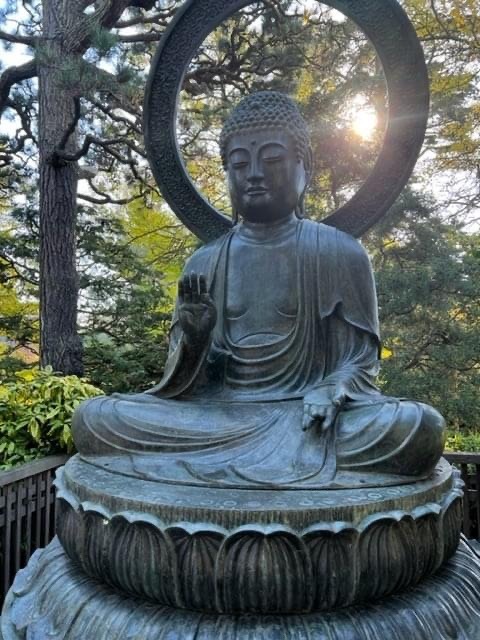
Photo by Ken Page manager
* * * *
"Empty mountain, no man is seen. Only heard are echoes of men’s talk. Reflected light enters the deep wood And shines again on blue-green moss."
Wang Wei (699–751 AD) has often been called “the Buddha of the Poets.” Sparse invocations of empty mountains, reflected light, and echoes of voices permeate his poetry, which centers almost exclusively on nature. According to Rafal Stepien, an expert on Chinese literature and philosophy, Wang Wei’s poetic impulse sprang from a deep engagement with Buddhist ideas, particularly the concept of emptiness.
The Imagery of Emptiness in the Poetry of Wang Wei (王維 699–761) By: Rafal Stepien Interdisciplinary Literary Studies, Vol. 16, No. 2 (2014), pp. 207-238 Penn State University Press
[Red Pine (translator) :: Bill Porter (author)]
7 notes
·
View notes
Text





Official English translated author comments featured in Weekly Shonen Jump 2024 issue #25
Kill Blue chapter 53 - Tadatoshi Fujimaki
Psych House chapter 2 - Omusuke Kobayashi
Akane-banashi chapter 110 - Yuki Suenaga
Blue Box chapter 149 - Kouji Miura
My Hero Academia chapter 423 - Kohei Horikoshi
Mission: Yozakura Family chapter 226 - Hitsuji Gondaira
Sakamoto Days chapter 166 - Yuto Suzuki
Kyokuto Necromance chapter 4 - Fusai Naba
Astro Royale chapter 5 - Ken Wakui
Jujutsu Kaisen chapter 260 - Gege Akutami
Witch Watch chapter 155 - Kenta Shinohara
Super Psychic Policeman Chojo chapter 14 - Shun Numa
Undead Unluck chapter 207 - Yoshifumi Tozuka
Me & Roboco chapter 185 - Shuhei Miyazaki
Nue’s Exorcist chapter 50 - Kota Kawae
Kagurabachi chapter 33 - Takeru Hokazono
Green Green Greens chapter 23 - Kento Terasaka
Dear Anemone chapter 13 - Rin Matsui
#Weekly Shonen Jump#Kill Blue#Psych House#Akane banashi#Blue Box#My Hero Academia#Mission Yozakura Family#Sakamoto Days#Kyokuto Necromance#Astro Royale#Jujutsu Kaisen#Witch Watch#Super Psychic Policeman Chojo#Undead Unluck#Me and Roboco#Nue's Exorcist#Kagurabachi#Green Green Greens#Dear Anemone#author comment#manga#Viz Media
22 notes
·
View notes
Text
Episode 200 - Library Fiction
It’s episode 200, which means it’s (finally) time for us to discuss Library Fiction! We talk about the stereotypes and tropes of library fiction, unacknowledged work of library workers,and more. Plus: we talk way more about our actual jobs than we usually do.
You can download the podcast directly, find it on Libsyn, or get it through Apple Podcasts or your favourite podcast delivery system.
In this episode
Anna Ferri | Meghan Whyte | Matthew Murray 🦇 | Jam Edwards
Things We Read (or tried to…)
Labyrinths: Selected Stories & Other Writings by Jorge Luis Borges
The Book That Wouldn’t Burn by Mark Lawrence
Ex Libris: Stories of Librarians, Libraries, and Lore by Paula Guran (below are direct links to many of the stories from this collection)
In the House of the Seven Librarians by Ellen Klages
In Libres by Elizabeth Bear
Those Who Watch by Ruthanna Emrys
Paper Cuts Scissors by Holly Black
Summer Reading by Ken Liu
Magic for Beginners by Kelly Link
With Tales in Their Teeth, From the Mountain They Came by A.C. Wise
The Librarian’s Dilemma by E. Saxey
The Green Book by Amal El-Mohtar
A Woman's Best Friend by Robert Reed
If on a Winter's Night a Traveler by Xia Jia, translated by Ken Liu
The Sigma Structure Symphony by Gregory Benford
The Fort Moxie Branch by Jack McDevitt
The Last Librarian: Or a Short Account of the End of the World by Edoardo Albert
How Can I Help You by Laura Sims
Strange the Dreamer by Laini Taylor
Souls in the Great Machine by Sean McMullen
Other Media We Mentioned
The Library of Mount Char by Scott Hawkins
The Empty Crown by Rosemary Edghill
Meghan meant The Abortion by Richard Brautigan (not Trout Fishing in America)
The Midnight Library by Kazuno Kohara
The Invisible Library by Genevieve Cogman
Bookhunter by Jason Shiga
Unshelved by Gene Ambaum and Bill Barnes
Library Comic by Gene Ambaum and Willow Payne
Welcome to Night Vale
Piranesi by Susanna Clarke
Episode 134 - Piranesi by Susanna Clarke
We Have Always Lived in the Castle by Shirley Jackson
Abbott Elementary
Pounded In The Butt By My Handsome Sentient Library Card Who Seems Otherworldly But In Reality Is Just A Natural Part Of The Priceless Resources Our Library System Provides by Chuck Tingle
My Librarian Is A Beautiful Lesbian Ice Cream Cone And She Tastes Amazing by Chuck Tingle
Party Girl
Public Enemy - Fight the Power
Fictional Librarians
50 Fictional Librarians, Ranked
Rupert Giles (Buffy the Vampire Slayer)
Barbara Gordon (DC Comics)
The Librarian (Discworld)
Lucien (The Sandman)
Evelyn Carnahan (The Mummy)
Marian Paroo (The Music Man)
Librarians (Welcome to Night Vale)
“While their description is never fully given, minor details of their physical characteristics have been described:”
yellow, gnarled teeth
sharp claws and pincers
Wings
Tentacles
thousands of spiny legs
rattles (that make noise when they move)
thoraxes
Links, Articles, and Things
Two-Fisted Library Stories zines
North Boulder Library is ready to open (there’s a slide in image 6!)
15 Librarian & Library Fiction by POC Authors
Every month Book Club for Masochists: A Readers’ Advisory Podcasts chooses a genre at random and we read and discuss books from that genre. We also put together book lists for each episode/genre that feature works by BIPOC (Black, Indigenous, & People of Colour) authors. All of the lists can be found here.
The Reading List by Sara Nisha Adams
What You Are Looking for Is in the Library by Michiko Aoyama, translated by Alison Watts
Cora's Kitchen by Kimberly Garrett Brown
The Next Best Fling by Gabriella Gamez
The Woman in the Library by Sulari Gentill
The Library of the Dead by T.L. Huchu
The Library of Fates by Aditi Khorana
The Plotters by Kim Un-Su
The Very Secret Society of Irregular Witches by Sangu Mandanna
The Memory Librarian: And Other Stories of Dirty Computer by Janelle Monáe
Our Missing Hearts by Celeste Ng
The Book of Form and Emptiness by Ruth Ozeki
The Library Thief by Kuchenga Shenjé
The Cartographers by Peng Shepherd
Bookhunter by Jason Shiga
Give us feedback!
Fill out the form to ask for a recommendation or suggest a genre or title for us to read!
Check out our Tumblr, follow us on Instagram, join our Facebook Group or Discord Server, or send us an email!
Join us again on Tuesday, October 1st we’ll be getting ready for spooky season with the Weird West! (That’s Supernatural Horror Westerns)
Then on Tuesday, October 15th it’s time for our “We All Read the Same Book” episode as we discuss A Wizard’s Guide to Defensive Baking by T. Kingfisher.
3 notes
·
View notes